THEMIS INDUSTRY GUIDE





At Themis at Burnley College we’re passionate about Apprenticeships - and we’re passionate about seeing your business succeed.
Whatever your industry sector, whatever the size of your business we are committed to supporting your Apprenticeship needs.
Apprentices bring so much to the workplace, from the very latest skills and knowledge, to enthusiasm and innovation, they’re the perfect solution to help futureproof your business and stand head and shoulders above your competitors.
Here at Themis, we combine an unrivalled, rigorous recruitment process alongside expert training and support from Tutors with years of experience in their chosen field. Plus, our training suites, workshops and laboratories are second-to-none, with Apprentices training on the equipment used in industry.
We welcome the opportunity to talk to you about how hiring a Themis Apprentice can transform your business.
Neil Burrows Director of Skills & Innovation
There’s a Themis Apprenticeship for you
Neil Burrows Director of Skills & Innovation



If you agree with most or all of these statements, then you have what it takes to be a Themis Apprentice. We will empower you to seize the opportunities and success you deserve in the industry of your choice.

Themis Apprentices have the drive to be the very best and to excel in their chosen sector or industry. They are focussed on success.
Themis Apprentices understand that, to stand out from the crowd, they have to show 100% effort and commitment – both in the workplace and in College training.
Themis Apprentices are natural problem-solvers, they apply their skills and knowledge in different situations to find innovative solutions.
Themis Apprentices have the confidence and self belief to work independently. Themis Apprentices also have the communication skills to play a role in teamwork.
Themis Apprentices are driven to see their skills, knowledge and innovation make a real difference to their Employer’s business. It fuels their passion.
Themis Apprentices set clear career goals and understand the need to work consistently towards them, celebrating each milestone along the way.
Themis Apprentices understand that, to be the very best, they must combine top practical skills alongside a thorough understanding of their specialism.
Themis Apprentices understand that their journey to career success may not without barriers. However, Themis Apprentices learn from setbacks and will not be defeated.

Themis makes a deal with you. If you achieve the qualifications you need and can confidently talk about your career dreams and industry knowledge, Themis pledges to back you 100% as you search for your ideal employer and launch your dream career.
We know you want the best possible start in your career, that’s why the Themis team deliver individual support in the following areas:
• CV and cover letter creation and writing
• Interview guidance and tips
• Research techniques so you can find out more about the industries in which you want to launch your successful career.
You will be allocated your own recruitment specialist who will match you to vacancies and arrange employer interviews.
Themis Apprentices stand out from the crowd and are highly sought-after by employers in all sectors across the North West. If you are driven, enjoy combining study and work and want to take that first step on the career ladder towards becoming a #futureboss, then a Themis Apprenticeship is the route for you, with progression opportunities to a Higher or Degree Apprenticeship.


As a Themis Apprentice you’ll be encouraged to push yourself, your skills and your knowledge to the limit, breaking boundaries and achieving greater and greater success.
Themis Apprentices are recognised nationally and internationally for their skill, dedication, passion and competitive edge.

Engineering Design (Mechanical Engineering) Degree Apprentice, HycAero
An inspirational Engineer who joined Burnley College and completed her HNC and HND before embarking on her degree as an Apprentice, achieving first class honours.
A true ambassador for Apprenticeships, Grace was invited to a Skills Reception at 10 Downing St by Burnley MP Antony Higginbotham, where she shared her experiences as a Themis Apprentice to the Secretary of State for Education in a roundtable discussion.
A trailblazer in her field, inspiring others and embracing opportunities.

Additive Design (Automation) Worldskills National Finalist
Igor, 20, from Burnley, former Student at Blessed Trinity RC College is employed by global sustainability technology company Johnson Matthey where he is in the third year of a four year Apprenticeship as an electrical and instrumentation technician.
Reaching the national finals is challenging and rewarding, with long hours spent practising complex tasks. His competition demands a high level of proficiency in tasks such as designing and testing pneumatic and electro-pneumatic circuits as well as PLC programmes.

Director of Skills, Innovation and Employer Engagement, Themis National Apprenticeship Awards
Neil was honoured for going above and beyond in championing Apprenticeships among the many skills programmes on offer through his years of experience and vast skillset. As a finalist, Neil’s expertise in building close relationships with industry and ensuring the campus has the same cutting-edge technology found in modern workplaces was celebrated.

Apprenticeship College of the Year
We are incredibly proud to be a beacon of education excellence in the Construction Industry.
This award celebrates our dedicated and talented Apprentices who are making a positive impact on the future of construction.
Our prestigious, glittering ceremony honours nominated Apprentices, their families and their employers are invited to join in an evening of celebration, innovation and inspiration.
We can’t wait to celebrate your success at our future Themis Inspire & Achieve Awards.



Property Maintenance Operative Apprentice at Onward Homes Ltd
The Ultimate Vision Award
“Dawn displays incredible dedication and commitment to her role, achieving results through her positive, confident and brave approach. Her openness to learning has served her well, bolstering the many skills she has while continuing to grow.”
Business Administration Apprentice at QUEST Electrical/ESP Play
Platinum Apprentice Award
“Harrison is valued by his managers and fellow employees, taking on a mentoring role with newer apprentices. He makes a real difference as a natural and hardworking individual. Harrison demonstrates all the best attributes of being an apprentice and how this can benefit others.”
Mechatronics Apprentice at Stolle
The Innovator Award
“Maxwell’s Line Manager describes him as ‘the smartest Apprentice I have ever met, with an incredible work ethic’ and his progression in such a short space of time has been phenomenal. He has made significant contributions to his department; his impressive mastery in understanding machinery drawings and workings demonstrates his ability to grasp complex concepts with ease.”

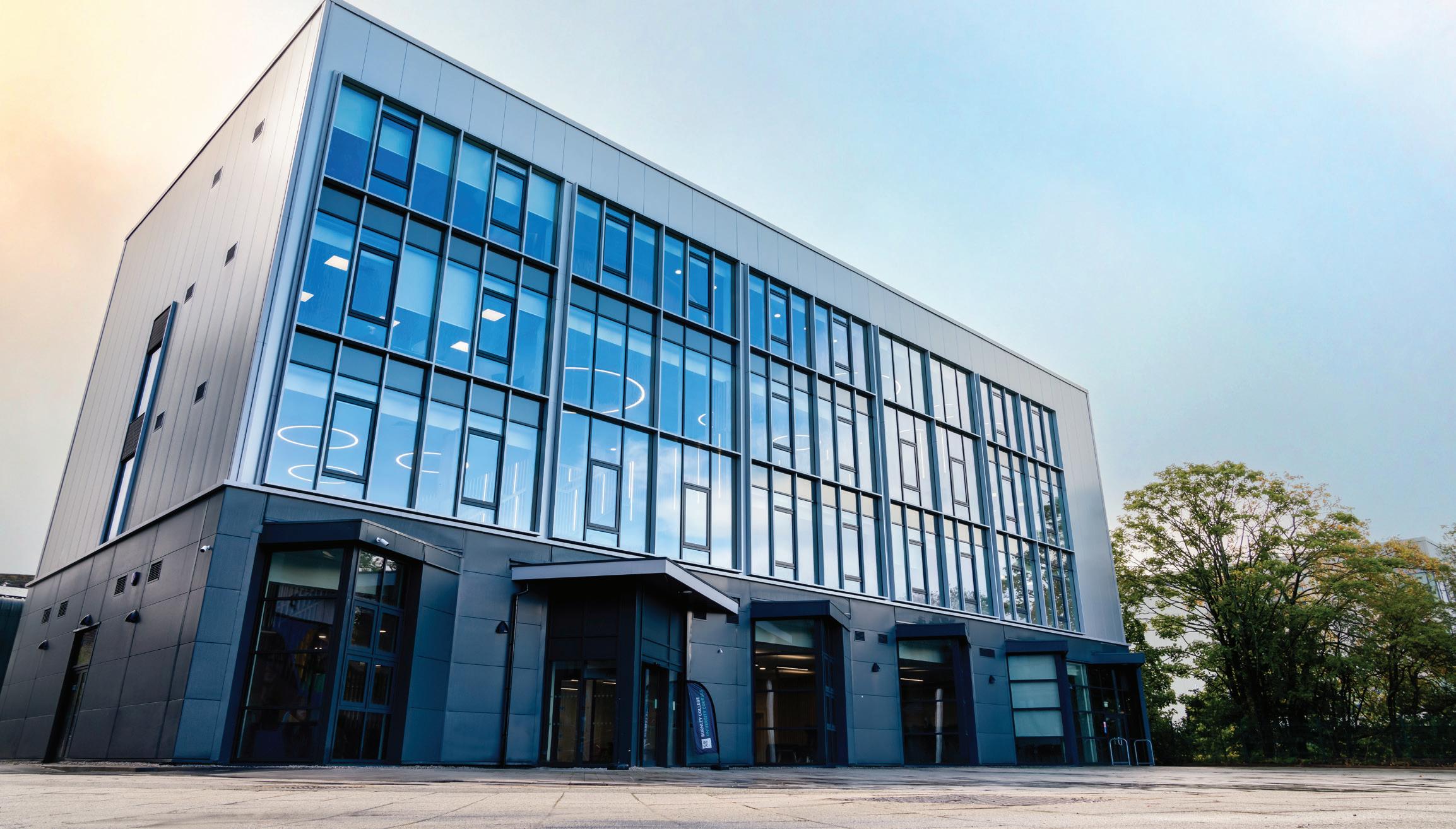



Our training spaces are bright and comfortable, packed with the latest technology to ensure you are at the cutting edge of your chosen sector.
Our contemporary learning spaces reflect your professionalism and are the ideal location for you to excel and innovate, allowing you to take your new-found, sector-specialist skills and knowledge back to the workplace.
We have invested heavily in providing high-specification science laboratories fitted with the latest technology and equipment – and a focus on health and safety in the health and science industries.
Our Centre for Advanced Manufacturing and Engineering Excellence is constantly expanding to accommodate the very latest equipment and technological developments, ensuring you are prepared for Industry 4.0. From traditional Engineering skills to the very latest Robotics and Mechatronics expertise, from CAD suites to welding bays, we replicate the industry experience that is vital to your success.
A custom-built environment to hone your skills in Construction Trades including electrical installation, plumbing, brickwork, plastering, painting and decorating.
Our unrivalled, industry-leading sport and fitness centre and gym offers the very latest professional equipment including the Cryotherapy Suite and Environmental Chamber alongside a sauna, dance studio, 4G pitch, professional climbing wall, multi-use games area and weekly fitness classes.
Custom-built for classroom-based and practical workshop learning for the construction industries. The hub serves the next generation of skilled professionals, providing the environment to thrive in site carpentry, joinery and furniture manufacturing sectors.
State-of-the-art facilities which boast advanced computing labs and access to industry-specific software, ensure our Apprentices receive hands-on, state-of-the-art training.
Innovative and industry-leading multipurpose facilities include a holistic therapy suite, nail bar and Evolution Spa, dedicated to this growing industry of treatments to benefit the body and mind.
An innovative, 4-storey learning facility with a state-of-theart lecture theatre, Computer Suites and Science Labs, perfect for Higher level and Degree Apprentices.
The exciting nursery setting provides learners with the opportunity to build practical skills in a real-life work environment and plan activities like circle time, literacy and numeracy.
















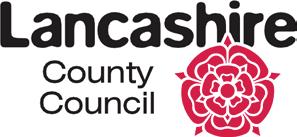


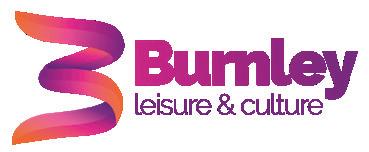


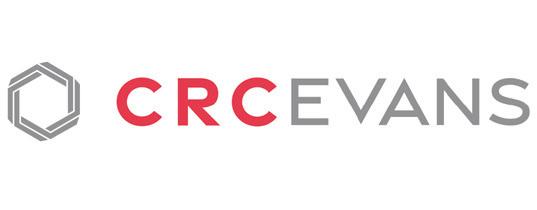








Leaders in their chosen fields, Themis Tutors and Trainers work together to provide an unrivalled support network bringing your classes and practical sessions to life – the Themis Way.

With years of experience in their chosen fields, Themis Tutors and Trainers will use their knowledge, skills and passion to ensure you stand out, head and shoulders above the crowd, setting you on the pathway to success.
The Themis Team are here to support you every step of the way. From finding the perfect Apprenticeship opportunity with our range of industry contacts to helping you build the perfect CV and preparing you for interviews with your dream employer – the team will guide, advise and go out of their way to ensure you achieve the success you deserve.
If you have any questions about any single aspect of the process, they have the answers and are ready to share them with you. You can email them any time –themis@burnley.ac.uk
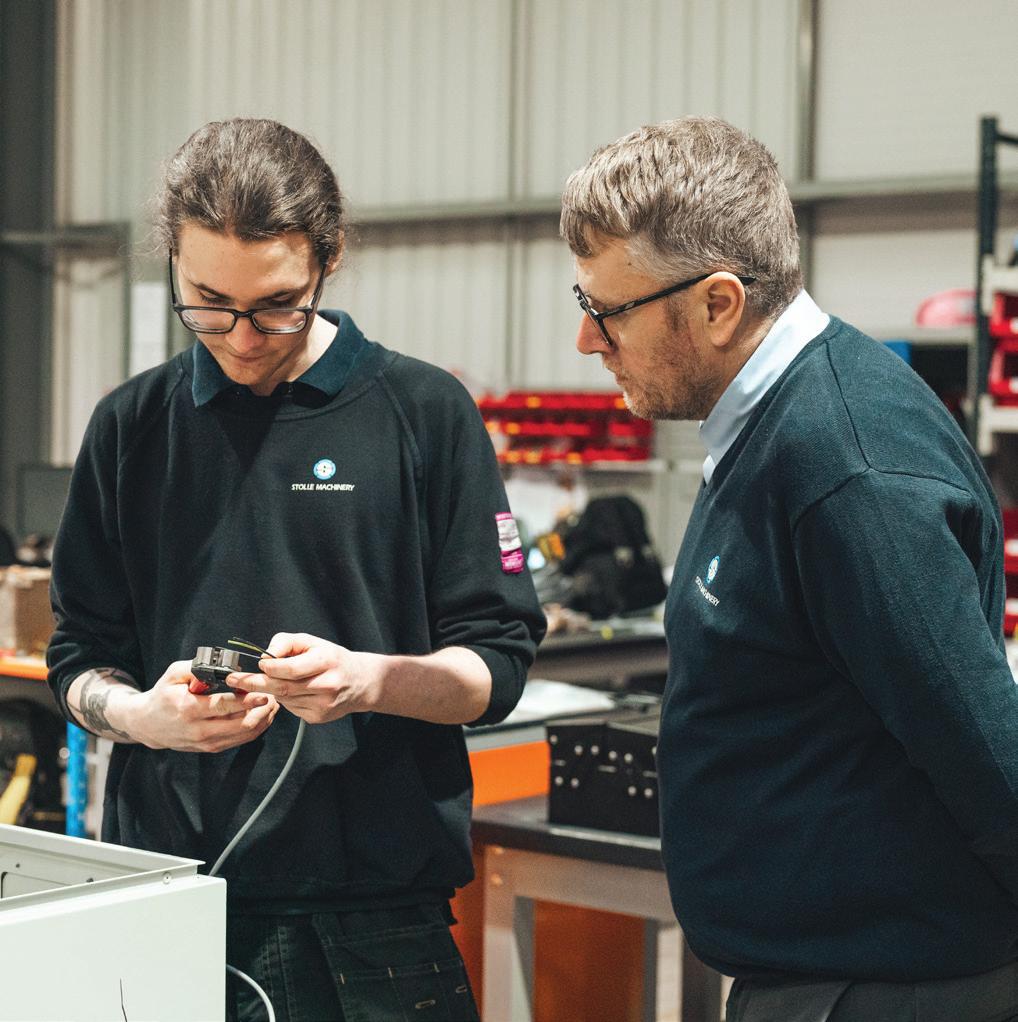
We will provide training that fires the enthusiasm of Apprentices and opens their eyes to the many opportunities for career development open to them. We will help them to rise to any challenges they face and give them the skills that will allow them to succeed in any role or career they choose in future.
Themis Tutors and Trainers are recruited for their industry expertise and their experience. They are specialists in their chosen fields with an in-depth understanding of both Apprentices’ and Employers’ needs.
Themis is based within Burnley College’s £110 million town centre Campus and offers industry-standard workshops, laboratories and technology suites to ensure that every Apprentice is familiar with the equipment and technology they will encounter in the workplace.
We will provide Apprentices with the opportunity to test their skills and knowledge against the very best in the region, country and world by entering into highly-respected and industry-recognised contests. We will celebrate success together.
Themis is in constant dialogue with Employers - large and small - from a diverse range of sectors to secure Apprenticeship positions. Our Employers are all forwardthinking, understand the vital role an Apprentice can make in business transformation and are leaders in their field.
Following the completion of an Apprenticeship, There is opportunity for Apprentices to progress to degree-level study at BCUC. A range of HNC, HND, Foundation Degree and Full Degree Programmes are offered with seamless transition into university-level study.
Apprentices will have access to specialist support services every step of the way. Application and interview support is available, alongside an online portal dedicated to promoting good mental health and wellbeing, available 24 hours a day, seven days a week. Apprentices also have access to a College counsellor, health drop-ins and our safeguarding team.
Many Themis Apprentices have the skills, knowledge and commitment to take their Apprenticeship success to the next level.
Taking a Themis Apprenticeship route into a chosen career gives the apprentice the opportunity to progress to Higher Level Apprenticeship study or gain a University Degree.
A Level 2 Apprenticeship usually lasts between 12 and 18 months. Your young person will need 2 GCSEs at Grade 2 or above in English and Maths to have the best chance of being placed with an employer. Some Apprenticeships must start at Level 2 to build a strong foundation in specialist skills and knowledge.
Your young person needs to have gained a Level 3 qualification in order to progress to a Higher Apprenticeship. These can often be HNC and HND qualifications.
This is often a progression option from Level 2 Apprenticeships, but in some industries a Level 3 Apprenticeship can be a starting level. Your young person will need 5 GCSEs at Grade 4 or above (dependent on the programme) including English and Maths to have the best chance of being placed with an employer.
Your young person can progress onto a Level 6 Degree Apprenticeship from a Level 3, 4 or 5 qualification. They will complete their studies and graduate while working with an employer in industry.

Our Degree Apprenticeships are created by Themis at Burnley College and Burnley College University Courses.
Your Employer may be keen to bring additional skills into the workplace to drive their business forward and pass on to the rest of the workforce. Apprentices split their time between the workplace and University, where the knowledge acquired from industry experts in the specialist training facilities can be directly applied to real-life projects.
There are many benefits to taking a Degree Apprenticeship. You will:
• Earn a wage throughout the programme
• Gain a full degree without paying student fees
• Acquire graduate/postgraduate level skills
• Apply higher and degree level learning into the workplace to make an impact and drive business forward.
Burnley College University Courses (BCUC) is an innovative four-storey building on the modern Burnley College Campus. It is a specialist in the provision of industry-led university-level courses and the perfect location to take your studies to the next level.
BCUC offers:
• A comprehensive range of HNC, HND, Foundation Entry, Foundation degree, honours degree and post-graduate qualifications
• Industry-expert Lecturers, with significant, wide-ranging experience in their chosen sectors
• Strong links with local, regional and national Employers who add industry-specific insights into academic studies
• Facilities that are industry-standard and include high-tech workshops, laboratories and IT suites
• Additional support to ensure learners have the enhanced academic skills to master degree-level study.

POSITIVITY
USE TECHNICAL SKILLS TO IMPROVE WELLBEING AND MAKE NATURAL BEAUTY GLOW.





Isabelle Ratcliffe
Level 3 Beauty Therapy
Why did you choose an Apprenticeship?
I knew what I wanted to do and an Apprenticeship gave me the hands-on experience in the beauty industry that I need. It’s great to be learning different beauty techniques in a real setting.
Why did you choose Themis at Burnley College as your Apprenticeship provider?
My days are split between reception and spa host, greeting and helping clients. I also carry out some therapies on the clients so it is a really varied role.
What would you recommend about the Apprenticeship pathway?
I love practicing the different therapies and I’ve learned a lot about the different massage techniques. It’s exactly what I need to become a qualified therapist.
“I really enjoy my course which focuses on Holistic Therapy. I’m developing my skills while working and I’ve even been able to practice on staff models and contribute to employee wellbeing.”
Skipton
The award-winning Nàdarra Spa forms part of The Coniston Estate, near Skipton.
The state-of-the-art spa offers clients a five star level of care and service with organic treatments and an Asian-Fusion dining experience.
From going green to working with local charities and fundraising initiatives, sustainability is at the core.
The Coniston Hotel has become one of North Yorkshire’s most sought after destination hotels.
As a Themis Apprentice you will develop much more than industry expertise. You will gain skills that you can transfer between careers and even industries, such as:
Communication
Customer Service
Health and Safety
Personal Development
Team Work Organisation
Beauty Salon Manager | Beauty Therapist | Eyebrow and Lash Artist
| Facial Skincare Therapist | Mobile Beauty Therapist | Spa Manager | Waxing Therapist | Wellbeing and Holistic Therapist
Private Beauty and Wellbeing Sectors
Self Employment
• Excellent communication and interpersonal skills
• Organisation skills
• A strong interest in developing professional skills and knowledge
• The ability to develop successful working relationships with people from different backgrounds
• Conducting initial consultations to understand client needs and preferences
• Provide personalised product and service recommendations
• Master the application of a wide range of beauty products, from skincare to cosmetics
• Experiment with and perfect various techniques, including makeup application and nail art
• Ensure the highest levels of cleanliness and organisation of treatment spaces
• Maintain inventory and replenish supplies to ensure seamless operations
• Develop skills in scheduling and managing client appointments
• Coordinate with clients to confirm bookings and provide excellent customer service
• Observe professionals during treatments to gain hands-on experience
• Deepen product knowledge by staying updated on the latest beauty products and tools
• Gain proficiency in using specific equipment, such as facial steamers and nail kits
• Stay abreast of current trends and emerging innovations in the beauty industry
• Participate in workshops and seminars to expand knowledge and expertise
A Beauty Salon Manager can earn between:
A Beauty Therapist can earn between:
A Wellbeing and Holistic Therapist can earn between:
£20,900 - £45,010
£14,270 - £24,730
£22,390 - £48,230
This occupation is found in wellbeing environments; Spa, Leisure, Holistic or Wellness Therapy centres, Medi-spas and Beauty salons, although these environments are expanding due to the continuing demand for lifestyle wellness including para medical, health care environments and businesses implementing wellbeing corporate responsibility. The broad purpose of the occupation is to create, implement and adapt tailored holistic and wellbeing experiences, in a variety of environments, meeting and managing treatment and experience outcomes in private, secure and safe environments.
Wellbeing and Holistic therapists complete treatments and wellbeing experiences via holistic therapy principles, theories and applications to calm or stimulate the sensory perceptions of the body and mind in the pursuit of optimal functioning and balance of the physical, emotional and mental aspects of daily life. This results in a dynamic state of equilibrium and wellbeing for the client. Wellbeing therapists deliver specific treatments such as; aromatherapy, acupressure (manual digit pressure massage applied by the hands to specific points on the face or body) and holistic massage (therapeutic hands-on massage therapy that affects the clients physical, emotional and mental wellbeing), Indian head massage, lymphatic drainage and wellness experiences. They provide post treatment aftercare and make future recommendations.
Job titles would include, Spa therapist, Holistic therapist, Wellbeing therapist
Applicants should have 5 GCSEs at Grade 5 or above including English language or a relevant Level 2 beauty qualification including English language at grade 5+.**
LEVEL 2/3
15/18 MONTHS*
A Beauty therapist works in one of the largest, trusted, professional and continually expanding industries within the Hair and Beauty Sector. The work environment can be varied in size, style and ambiance, from a cruise ship, through to small bespoke salons or luxury high end beauty salons and spas.
A Beauty Therapist works independently or as part of a team supported by a manager when completing treatments as a key part of a beauty business. They demonstrate a willingness to learn, have an enquiring and curious mind and are enthusiastic to learn about their chosen career. In addition, they exhibit a good work ethic applied to learning, drive and commitment to learn and maintain continual professional development. They deliver essential one-to-one Beauty Therapy treatments whilst maintaining the organisation’s image, financial viability and reputation. They complete all duties and treatments within the scope of the occupational role in accordance with legal, industry and organisational requirements within commercially viable times. They act with professionalism, without supervision and observe safe working practices to a high level of precision.
A beauty therapist would develop practical skills by covering the following units; facial skincare, waxing, eyelash and eyebrow treatments, manicure, pedicure, client care and health and safety.
Upon completion of the Level 2 Beauty Therapist, the apprentice can progress onto the Level 3 Advanced Beauty Therapist. Job titles would include a junior beauty therapist in a salon, a beauty consultant in the retail industry, or self-employment as a mobile beauty therapist
Applicants should have 2 GCSEs at Grade 4 or above to gain entry onto the Level 2 pathway. We also advise all candidates that having Mathematics and/or English GCSEs are desirable as you will have to re-sit these as part of your Apprenticeship. To enrol or progress onto Level 3, the apprentice would need to have achieved a Grade 4 or above in English and Mathematics or have Level 2 Functional Skills equivalent and also have a relevant Beauty Level 2 qualification.**

EFFICIENT

INNOVATE THROUGH STRONG COMMUNICATION AND ENTREPRENEURIAL SPIRIT

Watch Jordan in action



Jordan Clarke Chartered Manager Degree Apprenticeship
Why did you choose an Apprenticeship?
I preferred the ideas of gaining work experience alongside my education rather than going to university.
Why did you choose Themis at Burnley College as your Apprenticeship provider?
I work in Production Control Support which includes planning production, team member workflows, communicating with customers and ensuring that production, delivery and operational goals are met each month.
What would you recommend about the Apprenticeship pathway?
I’m really enjoying bringing my growing organisational skills into the team and helping HycAero to achieve our sales target.
“My learning is split between knowledge, skills and behaviours and I’m working towards my next career aspiration of becoming team leader in my department.”
Burnley
The Petrochemical, Industrial Power Generation and Aerospace giants HycAero are proud multi-tier suppliers to the Aerospace Industry. High levels of investment in Robotics and Automation coupled with a commitment to employee training and development have allowed them to offer innovative solutions to complex problems making them the Special Process provider of choice for Aerospace’s Primes and Tier 1 companies.
As a Themis Apprentice you will develop much more than industry expertise. You will gain skills that you can transfer between careers and even industries, such as:
Resilience Problem-solving Team Work Leadership Analysis Time Management Computer Literacy Organisation Self-Management
Accountant | Financial Analyst | Payroll Manager | Anti-Money Laundering Officer | Bookkeeper | Auditor | Finance Officer | Administrator | Project Manager | Human Resources Officer | Marketing Executive
Private sector employers in all industries
National and Local Government
Self employment
National Health Service
• Administration skills
• The ability to work well under pressure
• Communication and interpersonal skills
• Organisational and time management skills
• Numeracy and a methodical approach
• IT proficiency
• Strong analytical and problem-solving skills
• Integrity and trustworthiness
• Customer service skills
A Chartered Accountant could earn between:
A Bookkeeper could earn between:
A Tax Advisor could earn between:
An Administration Assistant could earn between:
A Health Service Manager could earn between:
A Marketing Executive can earn between:
• Manage financial systems and budgets
• Undertake financial audits
• Liaise with clients to provide financial information and advice
• Perform tests to check financial information and systems
• Advise clients on tax planning and tax issues
• Detect and prevent fraud
• Liaise with internal and external auditors (where applicable) and deal with financial irregularities
• Produce reports and recommendations following audits
• Manage and evaluating projects
• Deal with enquiries and giving advice
• Present information at meetings
• Prepare and managing contracts
£56,000 - £90,000
£17,000 - £26,000
£18,000 - £50,000
£14,000 - £30,000
£30,000 - £100,000
£18,000 - £35,000
Degree Apprenticeships combine university study and work-based learning to enable Apprentices to gain a full Bachelor’s degree. This provision of an academic undergraduate degree is integrated with experience, practice and learning in the workplace. An Apprentice has paid employment status and does not pay any training costs or student fees. Degree Apprenticeships are codesigned by employers ensuring that Apprentices are equipped with the skills employers need and for their own future career.
The Chartered Manager Degree Apprenticeship (CMDA) programme equips Apprentices with the skills and strategies to deal with contemporary challenges in global management practice, as well as provide attendees with the confidence, behaviours and subject knowledge to further develop areas of specialist management, leadership and consultancy. Successful Apprentices will gain a BA (Hons) Business Management degree from UCLAN along with Chartered Manager status from CMI.
Learners can progress onto studying a Masters in Business Management or can progress internally within their own company.
A Level 3 qualification in Business or a related subject. Applicants should have 5 GCSEs including English and Mathematics.**
This Apprenticeship includes the standard as well as completing the CIPD Associate Diploma in People Management which is mandatory. HR Professionals in this role are typically either working in a medium to large organisation as part of the HR function delivering front line generalist or specialist support to managers and employees or are a HR Manager in a small organisation. The ideal candidate will already have experience and knowledge of working within a HR function and will have a range of examples that they can bring.
They will typically be taking ownership for providing advice to managers on a range of HR queries and be responsible for delivering training sessions to upskill managers on core processes and explaining the importance of being compliant with employment law and how failure to comply could lead to tribunals. They will be responsible for managing their own CPD and will be attending any relevant employment law updates, webinars and/or HR Forums to ensure that their knowledge is up-to-date.
In a larger organisation, they may be in a specialist function such as: Learning and Development Coordinator or a generalist responsible for a small team or a specific department within the organisation.
Upon successful completion, applicants can progress onto L7 and can gain Associate Membership with CIPD. A successful career could lead to HR Business Partner, HR Consultant or L&D Coordinator.
Applicants should have completed L3 HR Support and/ or L3 Foundation Certificate in Human Resources. Prior experience in HR is required to meet the required knowledge, skills and behaviours.**
18 MONTHS* LEVEL 4 LEVEL 4
This Apprenticeship includes the knowledge, skills and behaviours that are required to successfully delivery a project, ensuring its scope and benefits are achieved as planned allowing you to be a competent Project Manager of the future. You will cover: Business Requirements and objectives, Regulation and legislation, Project management tools and techniques, Managing information, Managing stakeholders and Research, analysis and evaluation.
You will build a portfolio of work evidence over the duration of the apprenticeship showcasing how you meet the knowledge, skills and behaviours required.
Progression in the workplace. The possibility of a Chartered Management Degree Apprenticeship (subject to meeting entry criteria).
Applicants should have 5 GCSEs at Grade 4 or above including English Language and Maths and a relevant Level 3 qualification. Prior experience in project management is preferred but not essential.**
18 MONTHS*
This course embeds the AAT Level 4 Diploma in Professional Accounting. The qualification covers complex accounting and finance topics and tasks leading to students becoming confident with a wide range of financial management skills and applications. Students will gain competencies in drafting financial statements for limited companies, recommending accounting systems strategies and constructing and presenting complex management accounting reports.
Individuals in the role of a professional accounting technician will have responsibility for creating, and/ or verifying and reviewing, accurate and timely financial information within the organisation in which they are employed or on behalf of another organisation. This will be performed in order to meet relevant ethical, professional and legal standards, and will utilise the individual’s knowledge of the business systems and processes, as well as standard accounting and tax practices. This role may exist in an accounting practice, a professional services company, HMRC or the accounting function of a business or other organisation
Throughout the course you will need to pass a series of exams.
A successful career in accounting, progression to applying for ACCA status.
Applicants should have at least 5 GCSEs at Grade 5 or above including English and Mathematics with Maths being at a minimum of a grade 6. They should also have achieved a Level 3 AAT Diploma in Accounting or the Level 3 Assistant Accountant Apprenticeship.**
3
18 MONTHS*
This apprenticeship includes gaining the required knowledge, skills and behaviours to provide professional HR support. You will study; business understanding, HR legislation and policy, HR function, HR systems and processes, service delivery and communication and interpersonal.
HR Professionals in this role are typically either working in a medium to large organisation as part of the HR function delivering front line support to managers and employees. Their work is likely to include handling day to day queries and providing HR advice; working on a range of HR processes, ranging from transactional to relatively complex, from recruitment through to retirement; using HR systems to keep records; providing relevant HR information to the business; working with the business on HR changes.
A successful career in core Human Resources, Associate membership with CIPD with potential to progress to higher level CIPD courses including the Level 5 People Professional Apprenticeship.
Applicants should have 5 GCSEs at Grade 5 or above, including English Language and Mathematics.** Human Resources
3
18 MONTHS*
This Apprenticeship provides an opportunity to expand knowledge in the Accountancy profession and can lead to a variety of careers with supporting professional qualifications. It embeds the AAT Level Diploma in Accounting which covers a range of essential and higherlevel accounting techniques and disciplines including; management accounting techniques, preparing financial statements, tax processes and business awareness.
Apprentices are expected to complete an End Point Assessment covering the knowledge, skills and behaviours gained throughout the course involving a synoptic knowledge test and professional discussion that is underpinned by a portfolio comprising of a range of evidence produced in the workplace whilst on the apprenticeship.
Throughout the course you will need to pass a series of exams.
AAT Level 4 Professional Diploma in Accounting, Level 4 Professional Accounting or Taxation Technician Apprenticeship or a successful career in a range of private industries or public sector bodies.
Applicants should have achieved the Level 2 AAT Certificate in Accounting or the Level 2 Accounts / Finance Assistant Apprenticeship as well as having 5 GCSEs at Grade 5 or above, including English Language and Mathematics with maths being a minimum of a grade 6.**
15 MONTHS* LEVEL 3
This apprenticeship includes gaining the required knowledge, skills and behaviours to provide successful business support.
Knowledge delivered includes; Business fundamentals, professionalism, organisational structures, legislation and regulations, external environmental factors and stakeholders. Skills covered throughout the apprenticeship are; IT, Record and Document Production, Decision Making, Interpersonal Skills, Communications, Quality, Planning and Organisation, Project Management. Business Administrators develop key skills and behaviours to support their own progression towards management responsibilities. Apprentices will be expected to work both independently and as part of a team developing, implementing, maintaining and improving administrative services.
A higher level Apprenticeship; Level 4 Project Management, Level 6 Chartered Management Degree. A successful career in Business Management, Digital and Social Media, Events Management or Marketing.
Applicants should have 5 GCSEs at Grade 4 or above, including English Language and Mathematics or have completed a relevant Level 2 qualification.**
13 MONTHS* LEVEL 2
This apprenticeship includes gaining the required knowledge, skills and behaviours to provide successful customer service and includes; The customer experience, understanding the organisation, regulations and legislation, systems and resources, product and service knowledge and your role and responsibility.
The role of a customer service practitioner is to deliver high quality products and services to the customers of their organisation. Your core responsibility will be to provide a high quality service to customers which will be delivered from the workplace, digitally, or through going out into the customer’s own locality. These may be oneoff or routine contacts and include dealing with orders, payments, offering advice, guidance and support, meetand-greet, sales, fixing problems, after care, service recovery or gaining insight through measuring customer satisfaction. You may be the first point of contact and work in any sector or organisation type.
Your actions will influence the customer experience and their satisfaction with your organisation. You will demonstrate excellent customer service skills and behaviours as well as product and/or service knowledge when delivering to your customers. You provide service in line with the organisation’s customer service standards and strategy and within appropriate regulatory requirements. Your customer interactions may cover a wide range of situations and can include; face-to-face, telephone, post, email, text and social media.
Level 3 Business Administration. A successful career in Customer Service or Business Administration.
Applicants should have 2 GCSEs at Grade 4 or above. We advise all candidates that having Mathematics and/ or English GCSEs are desirable as you will have to resit these as part of your Apprenticeship.**
This Apprenticeship provides an entry into the Accountancy profession and can lead to a variety of careers with supporting professional qualifications.
This apprenticeship embeds the AAT Level 2 Certificate in Accounting which provides a solid foundation in finance administration and core accounting skills, including double-entry bookkeeping, basic costing and an understanding of purchase, sales and general ledgers. You will also learn about accountancy related business and personal skills and be introduced to the four key themes embedded in the qualification: ethics, technology, communications and sustainability. Apprentices will be expected to complete an end point assessment that includes a knowledge test and a structured interview underpinned by a portfolio of evidence demonstrating the skills gained throughout the programme. Throughout the course you will need to pass a series of exams.
Level 3 Assistant Accountant Apprenticeship, AAT Level 3 Diploma in Accounting. To begin a successful career as a Bookkeeper.
Applicants should have 2 GCSEs at Grade 5 or above, including English Language and Mathematics, with maths being a minimum of a grade 6.**



BUILD YOUR SKILLS INTO A REWARDING CAREER



Burnley
What does a typical day look like?
I start at 9am and my first job is to empty the equipment from the van. I prepare the tools for working with then carry out the job that might be plastering, plumbing, flooring, decorating or tiling. I really like that every day has something else to offer.
What skills have you developed on your Apprenticeship?
My communication and confidence have grown since becoming an Apprentice. I’ve become more of a team player and I’m more self motivated now. I will have many skills and be able to get employment easier or even set up my own business.
What’s the best thing about being an Apprentice?
Spending every day with my employer and learning so much, developing new skills. I have really enjoyed plumbing and tiling and have got better each time.
“It is a fabulous opportunity for my career and after my training I will be very employable.”
Finn-Robinson Developments provide a highquality customer service focusing on all aspects of property development and renovation in the residential housing market.
Developing personal relationships and a strong reputation have provided the foundations to their success, whilst they pride themselves on offering a bespoke service and skilled craftsmen working to the highest standard.
Customers expect highly skilled craftsmen based on reputation and recommendations which give them the competitive edge and ensures that they continue to grow.
As a Themis Apprentice you will develop much more than industry expertise. You will gain skills that you can transfer between careers and even industries, such as:
Adaptability Problem-solving Innovation Team Work Work Ethic Creativity
Site-supervisor | Carpenter/Joiner | Electrician | Upholsterer | Electrical
Installation | Furniture | Furniture production | Plumber | Plasterer |
Gas Service Technician | Bricklayer | Painter and Decorator | Fitted Furniture
Installer | General Manufacturer | CNC Operator and Wood Machinist
Large and small private sector companies
Self employment
Local Government Education sector
• Maths knowledge
• To be thorough and pay attention to detail
• The ability to use your initiative
• Customer service skills
• The ability to work with your hands
• Knowledge of building and construction
• Physical skills - movement, co-ordination and dexterity.
An Electrician could earn between:
A Security Systems Installer could earn between:
An Electricity Distribution Worker could earn between:
A Construction Site Supervisor could earn between:
A Plumber could earn between:
A Heating Engineer could earn between:
A Gas Service Technician could earn between:
• Installing power systems, security systems and lighting
• Checking systems to ensure they’re working safely and effectively
• Making and installing control panels repairing and rewiring machines
• Measuring and planning to give cost and time estimates
• Servicing gas and oil-fired central heating systems and radiators
• Installing and fixing domestic appliances like showers and washing machines
• Dealing with emergency call-outs like boiler breakdowns or blocked drains.
£18,000 - £42.000
£18,000 - £35,000
£16,000 - 35,000
£28,000 - 40,000
£15,000 - 40,000
£18,000 - £35,000
£12,000 - £38,000
This Apprenticeship must start at Level 2 to build a strong foundation in specialist skills and knowledge.
This Apprenticeship focuses on building the specialist skills required to become a competent Site Carpenter or Architectural Joinery Apprentice.
Apprentices will combine experience in the workplace with training in state-of-the-art, industry-standard workshops equipped with an extensive range of tools and equipment.
Assessment is carried out at the end of the course, through an End Point Assessment (EPA) and consists of a written exam and a practical assessment with professional discussion.
Skills covered in Site Carpentry include; Communication Skills, First and Second Fix, Building Calculations and Geometry.
Skills covered in Architectural Joinery include; Calculations and Geometry, Setting Out and Operating Woodworking Machinery and the Manufacture and Installation of Timber Components.
Upon completion of this apprenticeship, the apprentice can progress onto the Level 3 Craft Carpentry and Joinery and continue towards a successful career as a self-employed Carpenter and Joiner.
Applicants should have 2 GCSEs at Grade 4 or above. We advise all candidates that having Mathematics and/ or English GCSEs are desirable as you will have to resit these as part of your Apprenticeship. In order to progress onto Level 3, the apprentice must have achieved grade 4 equivalent in Maths & English.**
24/18
This Apprenticeship must start at Level 2 to build a strong foundation in specialist skills and knowledge.
This course focuses on the theoretical and technical knowledge required to be a fully competent bricklayer, combined with honing and perfecting practical skills whilst also referencing Health & Safety standards specific to the industry to ensure safe working practices. Apprentices will combine workplace experience with training in our state- of-the-art, industry-standard workshops equipped with an extensive range of tools and equipment, where you will learn, among other things, the following skills: preparation of materials; safe working practices; erecting masonry structures including radial and battered brickwork, feature and reinforced brickwork; other brickwork and building technology.
Theoretical lessons will develop knowledge of: Health & Safety: customer service; communication; energy efficiency; materials; alternative construction techniques; feature and reinforced brickwork; fireplaces and chimneys.
In addition to trade specific instruction, the course will also assist Apprentices in developing a positive and mature attitude to study, where effective communication and self-motivation become instinctive.
Upon successful completion of the Level 2 Bricklayer, the apprentice could progress onto Level 3 Craft Bricklayer. Apprentices will be competent tradespeople with a professional qualification recognised throughout the industry which can open the door to either a successful bricklaying career or Higher Education.
Applicants should have 2 GCSEs at Grade 4 or above. We advise all candidates that having Mathematics and/ or English GCSEs are desirable as you will have to resit these as part of your Apprenticeship. In order to progress onto Level 3, the apprentice must have achieved grade 4 equivalent in Maths & English.**
2/3
This Apprenticeship must start at Level 2 to build a strong foundation in specialist skills and knowledge.
This Apprenticeship focuses on building the specialists skills required to become a competent Plasterer.
Apprentices will combine experience in the workplace with training in state-of-the-art, industry-standard workshops equipped with an extensive range of tools and equipment.
Skills covered include: Dry Lining, Fibrous Plastering, Rendering, Solid Plastering, Communication Skills, Employment Rights and Responsibilities, Setting Out and Operating in a Range of Environments (including domestic, commercial and industrial) and Applying a Range of Modern and Traditional Materials.
Upon successful completion of the Level 2 Plasterer, the apprentice could progress onto Level 3 Craft Plasterer. Apprentices will be competent tradespeople with a professional qualification recognised throughout the industry which can open the door to either a successful Plastering career or Higher Education.
Applicants should have 2x Grade 4 GCSEs in any subject. We advise all candidates that having Mathematics and/ or English GCSEs are desirable as you will have to resit these as part of your Apprenticeship. In order to progress onto Level 3, the apprentice must have achieved grade 4 equivalent in Maths & English.**
This Apprenticeship develops skills in Electrical Installation, including the diagnosis and correction of electrical faults and functional skills, equipping Apprentices with a range of skills required by employers.
Apprentices undertake the AM2 test at the end of the programme to assess their practical knowledge, competence is assessed through workplace visits and a portfolio, theoretical knowledge is assessed via external examinations.
Skills covered include: Carrying Out Specified Connections on Electrical Wiring Systems and Equipment, Ensuring Safe Electrical Site Working, Implementing Safe Site Working Practices, Inspection, Testing and Commissioning of an Electrical Installation, Preparing, Positioning and Fixing Electrical Wiring Systems and Wiring Enclosures and Equipment.
HNC/D in Construction or Degree programmes in Building Services or a successful career as an Electrician.
Applicants should have 5 GCSEs at Grade 4 or above, including English Language, Mathematics and Science, in order to have the most success being placed with an employer.**
The primary role of is to repair and maintain a property to ensure it is a safe place to live or work.
An Apprentice will develop the knowledge, skills and behaviours required by a maintenance operative to repair and maintain:
• Electrical components - Sockets, switches and fuses
• Plumbing components - Taps, wastes and sanitary ware
• Joinery components - Skirting boards, doors, worktops and kitchen units
• Plastering backgrounds - Bonding, dry wall, skimming, renders
• Painting and decorating application - Primer, undercoat, gloss, wallpaper, lining paper
• Tiling application - Floor and wall tiles and grouting
• Maintain safety systems and equipment - Air conditioning units, heaters and boilers
This Apprenticeship will suit any individual looking at a future career as a Maintenance Assistant, Facilities Assistant, Maintenance Engineer, Maintenance Manager, Maintenance Technician, Caretaker, Janitor, Multi-Skilled Technician or Premises Manager.
Completing this Apprenticeship programme with its transferable skills will enable progression into roles such as a Technical Specialist e.g. Electrical or Plumbing and Supervisory and Management roles or Facilities Management, across a wide range of sectors.
Applicants should have 2 GCSEs at Grade 4 or above. We advise all candidates that having Mathematics and/or English GCSEs are desirable as you will have to resit these as part of your Apprenticeship.**
36 MONTHS* LEVEL 3
The broad purpose of the occupation is to plan, select and size, install, commission, service and maintain (including fault finding, diagnosis and repair) zero carbon central heating and hot water systems in buildings including dwellings and industrial and commercial premises. Zero carbon heat sources may include but are not limited to Ground and Air Source Heat Pumps and Solar Thermal Collectors. The occupation includes work on both new build and existing properties and typically involves the installation, service, fault finding and repair of zero carbon heating and hot water appliances, storage vessels, pipework, heat emitters and associated components and their mechanical and electrical control systems.
In their daily work, an apprentice in this occupation interacts with customers and end users, and as such requires a high level of customer service. The role is physical in nature and involves the manual handling of heavy equipment, working at height and in confined spaces.
The apprentice will be responsible for working both independently with a minimum of supervision and also as a member of a team involving close liaison and cooperation with site and line management, colleagues and other trades.
As part of this course, you will also achieve your water regulations qualification and your Unvented hot water storage (G3) qualification enabling you to install, service & maintain a variety of complex cold water & hot water systems.
A Higher or Degree Apprenticeship in a trade-related area, or HNC/D in Construction and Foundation Degrees.
Typical job roles would include heat pump installer, renewable heating technician, solar thermal engineer.
Applicants should have 5 GCSEs at Grade 4 or above including English Language, Mathematics and Science. You must also be in employment with a company who installs, services and maintains plumbing & heating systems and renewable technologies such as; air source heat pumps, ground source heat pumps, rainwater harvesting systems and solar thermal systems.
Construction Support Technician
24 MONTHS*
The broad purpose of the occupation is working in an exciting and dynamic environment which could be in an office or on a construction site at the heart of the contracting organisations including versatile activities using digital processes and systems to secure future projects and to enable progress and completion of actual construction sites. Technicians within this specific career area are engaged to interpret, analyse, contribute and directly assist construction contracting professionals working with a wide range of project resources and documentation regularly interacting with internal and external customers.
This occupation is found throughout the construction and built environment sector, including construction contracting and associated supply chain subcontractors. Construction Contracting Operations Technicians operate in a range of settings including estimating, planning, buying, site, quantity surveying and design and build roles, site and office environments include industrial, commercial, residential, refurbishment, heritage, retail and public sector projects.
A Higher or Degree Apprenticeship in a construction related area, or HNC/D in Construction and Foundation Degrees. Alternatively, a successful self-employed career, or further study through professional qualifications to become a Site Supervisor, Health and Safety Manager, Quantity Surveyor, Building Surveyor or Architect.
Applicants should have 5 GCSEs at Grade 4 or above including English Language and Mathematics, in order to have the most success being placed with an employer.**
This Apprenticeship develops skills in Electrical Installation, including the diagnosis and correction of electrical faults and functional skills, equipping Apprentices with a range of skills required by employers.
Apprentices undertake the AM2 test at the end of the programme to assess their practical knowledge, competence is assessed through workplace visits and a portfolio, theoretical knowledge is assessed via external examinations.
Skills covered include: Carrying Out Specified Connections on Electrical Wiring Systems and Equipment, Ensuring Safe Electrical Site Working, Implementing Safe Site Working Practices, Inspection, Testing and Commissioning of an Electrical Installation, Preparing, Positioning and Fixing Electrical Wiring Systems and Wiring Enclosures and Equipment.
HNC/D in Construction or Degree programmes in Building Services or a successful career as an Electrician.
Applicants should have 5 GCSEs at Grade 4 or above including English Language, Mathematics and Science, in order to have the most success being placed with an employer.**
48 MONTHS* LEVEL 3
Apprentices will combine experience in the workplace with training in state-of-the-art, industry-standard workshops equipped with an extensive range of tools and equipment.
Skills covered include: Commissioning and Decommissioning Gas Systems, Electrical, Environmental Awareness, Plumbing Science, Gas Installing, Plumbing Systems and Components.
A Higher or Degree Apprenticeship in a trade-related area, or HNC/D in Construction and Foundation Degrees.
Alternatively, a successful career as a self-employed Plumber, Heating or Gas Engineer, or study professional qualifications to become a Site Supervisor, Health and Safety Manager or Quantity Surveyor.
Applicants should have 5 GCSEs at Grade 4 or above including English Language, Mathematics and Science, in order to have the most success being placed with an employer.**
24 MONTHS* LEVEL 2
The Apprenticeship will include the principles of constructing pieces of furniture and the different types of jointing methods and information used in furniture design. Apprentices will develop their knowledge and skills related to Health & Safety, environmental issues and how to communicate with others on the job. Apprentices will learn practical skills specific to woodworking and/or upholstery, such as maintaining and using hand tools, preparing and using portable power tools and machinery and producing woodworking joints.
Each Apprentice will take the occupational route that is best suited to the business they work in. They will complete all the core requirements set out and then the set number of requirements for the chosen route.
Pathways include:
• General Furniture Manufacturer
• Modern Upholsterer
• Fitted Furniture Installer
A Higher or Degree Apprenticeship in a trade-related area, or HNC/D in Construction and Foundation Degrees. Alternatively, a successful career as a furniture manufacturer.
Applicants should have 2 GCSEs at Grade 4 or above. We advise all candidates that having Mathematics and/ or English GCSEs are desirable as you will have to resit these as part of your Apprenticeship.**


SUPPORTIVE RESOURCEFUL DEDICATED

Watch Mollie in action



Mollie
Level 2 Early Years
Practitioner Apprentice
Have you always wanted to work with children?
I have a passion for helping children learn and grow. Helping them reaching their milestones and develop is so rewarding. I found that I work better doing practical work rather than being in a classroom.
What’s the best thing about being an Apprentice?
Earning while I’m learning and being able to gain experience with an employer. I spent a year at College before becoming an Apprentice and while I enjoyed it, an Apprenticeship is the best route for me.
What is your ultimate career goal?

I’m going to use the skills I’ve developed as an Apprentice to become a teacher.
“I’ve developed my skills including talking to children and communicating effectively with them. I’ve also built confidence working with new people.”
Burnley
Giant Leap are passionate about making children happy and giving them the best possible opportunities, with an ethos of always doing the best they can for the children in their care and their families. The Ofsted “outstanding” facility allows children to flourish in a caring, fun, safe and nature-inspired environment where they can thrive and develop a lifelong love for learning.
As a Themis Apprentice you will develop much more than industry expertise. You will gain skills that you can transfer between careers and even industries, such as:
Innovation Communication
Listening Work Ethic
Computer Literacy Organisation
Personal Development Creativity
Nursery Assistant | Child Care Worker | Child Psychologist | Play Therapist | Health Visitor | Teacher | Teaching Assistant
Schools and Nurseries
Private and Public sector organisations
Charities
Health care providers
Skills
• A caring and patient nature
• Excellent communication skills including written, verbal and listening ability
• The ability to work as part of a team
• The capacity to think on your feet and stay calm in stressful situations
• Imagination and creativity
• Good organisational and time management skills
• Enthusiasm
• A strong regard for health and safety - a first aid certificate is useful.
A Nursery Worker could earn between:
A Primary School Teacher could earn between:
A Teaching Assistant could earn between:
A Child Protection Officer could earn between:
A Children’s Nurse could earn between:
• Supervise and monitor the safety of children in their care
• Help children keep good hygiene
• Organise activities or implement a curriculum that allow children to learn and explore interests
• Develop schedules and routines to ensure children have enough physical activity, rest and playtime
• Watch for signs of emotional or developmental problems in children
• Keep records of children’s progress, routines, and interest
• Develop learning plans that meet curriculum demands.
£14,000 - £24,000
£24,000 - £61,000
£11,500 - 24,000
£25,000 - £41,000
£24,000 - £37,000
5
24 MONTHS*
They are highly skilled practitioners who take an operational lead for the care, learning and development of all young children within their care, adapting to individual needs providing inclusive and holistic provision.
They are able to engage with sector developments both locally and nationally, with a commitment to developing their own professional and educational competencies. In their daily work, an employee in this occupation interacts with children aged birth to eight years, families, practitioners, other professionals and appropriate agencies. An employee in this occupation will be responsible for supporting the quality of learning and development in their setting.
Apply for management positions or enquire within Universities to complete a 12-month top-up programme, giving you a degree on completion and the qualification levels required to progress on to EYITT (Early Years Initial Teacher Training awards Early Years Teacher Status (EYTS), and as the leading Early Years Initial Teacher Training (EYITT)
The apprentice will need to be in a position with extra responsibilities to enable them to meet the criteria on the Level 5 such as Manager, assistant manager, deputy manager, Early years coordinator, room leader, SENCo and student liaison officer. Employment for 30 hours or more within an Early Years’ setting. An enhanced DBS.
Early Years Educators are highly trained professionals who play a key role in ensuring that young children learn and develop well and are kept healthy and safe. They work in a range of settings including full day care, children’s centres, pre-schools, reception classes and as childminders with children from birth to eight years.
Apprentices will plan and supervise child-initiated and adult-led activities which are based around the needs and interests of each individual child; Promote equality and diversity; Support children to develop numeracy and language skills through games and play; Have key person responsibility to help ensure each child feels safe and secure; Observe each child and shape their learning experience to reflect their observations; Meet the care needs of the individual child such as feeding, changing nappies and administration of medicine; Work in partnership with other colleagues, parents and/or carers or other professionals to meet the individual needs of each child.
Upon completion of this apprenticeship, the apprentice could progress onto a relevant Foundation Degree or Degree course, or a successful career as a Nursery Practitioner or Room Supervisor. If they have taken on a role in their setting with extra responsibilities, they could undertake the Level 5 Early Years Lead Practitioner.
Applicants should have 5 GCSEs at Grade 4 or above including English Language and Mathematics, in order to have the most success being placed with an employer, or have completed a Level 2 Apprenticeship as an Early Years Practitioner.
Teaching Assistants work in Primary, Secondary and Special Education Schools across all age ranges. The primary role of the Teaching Assistant is to support the class teacher to enhance pupils’ learning either in groups or individually, ensuring pupils understand the work set, know their learning objectives and stay on task in order to make progress.
Promoting self-belief, social inclusion and high selfesteem play an integral part to pupils’ wellbeing; ensuring pupils thrive in a positive, nurturing, safe environment. It is an active role supporting the learner to access the curriculum. They are good role models, act with honesty and integrity, take part in team meetings; contribute to planning and class activities. Promoting fundamental British values through spiritual, moral, social and cultural development and positive behaviours are crucial in contributing to improved pupil progress and development.
As well as ensuring full competency as a Teaching Assistant, this standard provides a foundation for potential progression into a number of career paths in the educational sector including Higher Level Teaching Assistant, Assistant Teacher and Teacher.
Applicants should have 5 GCSEs at Grade 4 or above including English Language and Mathematics, in order to have the most success being placed with an employer, or have completed a Level 2 Apprenticeship as an Early Years Practitioner.**
As an Early Years Practitioner (EYP) you will work and interact directly with children on a day to day basis supporting the planning and delivery of activities, purposeful play opportunities and educational programmes within the ethos of the setting. An EYP works as part of a professional team ensuring the welfare and care for children under the guidance and supervision of an Early Years Educator, Teacher or other suitably qualified professional within the Early Years Workforce.
You will be responsible for supporting child-initiated and adult-led activities based around the needs and interests of each individual child, working as part of a team to ensure each child feels safe and secure. An EYP will also support the observation and assessment of each child, contribute to their learning experiences and assist with the care needs of the individual child such as teeth, skin, hair, feeding, changing nappies and toileting under direction of a more senior member of the team.
You will work in partnership with other colleagues, parents and/or carers or other professionals. You will also have a responsibility for ensuring that you recognise when a child is in danger and/or at risk of serious harm or abuse and contribute to the health and safety of the children, staff and others on the premises.
Upon successful completion of this apprenticeship, the apprentice could progress onto Level 3 Early Years Educator. Alternatively, a successful career as a Nursery Practitioner, a role within the EYFS at a school, Room Supervisor or in a range of management roles.
Applicants should have 2 GCSEs at Grade 4 or above. We advise all candidates that having Mathematics and/ or English GCSEs are desirable as you will have to resit these as part of your Apprenticeship. To progress onto Level 3, the apprentice would need to achieve Grade 4 English and Mathematics or Level 2 Functional Skills.**


CONFIDENT ADAPTABLE
IMMERSE YOURSELF IN COMMUNICATION THROUGH TECHNOLOGY



What does a typical day look like?
No two days are the same. I have the opportunity to apply the knowledge I learn on a daily basis in my role, significantly growing engagements and users across social media platforms by creating professional and engaging content.
What skills have you developed on your Apprenticeship?
I have grown in confidence throughout the duration of my Apprenticeship, particularly in communication and social media skills. My role allows me to display initiative and innovation every day.
What has been your proudest moment so far?
I was particularly proud of creating a video campaign for International Men’s Day which produced record-breaking social media views and conveyed vital messages promoting positive mental health among men.
“I’ve been given incredible opportunities during my Apprenticeship working with the best team I could possibly ask for.”
Burnley College has a proud history of providing the very best education and training for people of all ages. Learners are at the heart of everything they do, which has secured them the proud status of Number One College in England since 2018 according to the Government’s National Achievement Rate Tables.
They are committed to Building Futures and Changing Lives and offer opportunities for school leavers and young people, adult learners, university-level learners and business training.
As a Themis Apprentice you will develop much more than industry expertise. You will gain skills that you can transfer between careers and even industries, such as:
Problem-solving Team Work Communication Computer Literacy Organisation Creativity
Digital Delivery Manager | Digital Marketer | Web Content Editor | Social Media Manager | Social Media Analyst | User Experience (UX) Designer
Private and Public Sector Employers
Education Sector
Third Sector
Local Government
• Knowledge of computer operating systems, hardware and software
• The ability to work well with others
• Analytical thinking
• To be thorough and pay attention to detail
• The ability to work well under pressure
• Excellent verbal communication skills
• Creating and/or analysing digital marketing campaigns for websites, apps and social media like LinkedIn, Facebook, Instagram and Twitter
• Developing market research surveys and working with customers in focus groups
• Working with marketing and PR professionals
• Briefing other professionals like web designers on advertising campaigns
• Designing and writing e-communications like e-newsletters and text campaigns
• Making information and advertising more interactive by adding case studies, videos and infographics to websites, apps and social media
• Using data from web tracking tools like Google Analytics to check the effectiveness of marketing campaigns
• Tracking the success of marketing campaigns and presenting your findings
• Using techniques like search engine optimisation (SEO) and search engine marketing (SEM)
• Writing/managing content for websites, email and social media
A Digital Marketing Executive could earn between:
A Social Media Manager could earn between:
A Web Content Editor could earn between:
A User Experience (UX) Designer could earn between:
£20,000 - £50,000
£23,000 - £75,000
£15,600 - £65,000
£15,600 - £65,000
Our BA (Hons) Digital Marketing Degree Apprenticeship combines theory and practice as you learn how to create and execute a digital marketing strategy. You’ll have all the tools you need to promote a business through social media, websites, apps and e-content.
Designed in collaboration with students, industry experts and national and local companies, it meets government standards for a digital marketing apprenticeship. You’ll develop workplace skills and competencies including through live projects, supported by your employer and supervised by members of the course team.
You’ll work towards Chartered Marketer status on a course that’s accredited by bodies like The Institute of Direct and Digital Marketing (IDM).
You’ll create a portfolio of evidence demonstrating your workplace knowledge, skills and competencies. You’ll study topics like data analysis and relationship management as well as social media marketing and optimisation.
With your BA (Hons) Digital Marketing Degree Apprenticeship you could work as an Online and Digital Marketing Executive or Officer in the public, private and charitable sectors.
Applicants should have 5 GCSEs at Grade 5 or above including English Language and Mathematics. A relevant level 3 qualification such as a BTEC Extended Diploma, A levels, a Level 3 Apprenticeship in Digital Marketing or Multi-Channel Marketer.**
This Apprenticeship is designed for individuals working in Marketing, the broad purpose of the occupation is to support customer focussed marketing activities that drive the demand for a product or service through awareness raising and/or perception building to generate results to the bottom line. As part of the marketing team the multichannel marketers will contribute to the implementation of the marketing strategy and plans. They will be responsible for delivering day-to-day marketing activities across a multitude of platforms, channels and systems that are essential to the marketing function and activities of the company.
You will learn a variety of knowledge, skills and behaviours including; marketing theory, principals of design and copy writing, current and emerging technologies, marketing campaigns, content marketing and content creation, metrics for evaluating marketing activity, SEO and digital developments. At the end of the 12-15 months of study apprentices will go through End Point Assessment where you will be assessed on the following: - Project report with presentation and questioning - interview underpinned by show case Portfolio - showcasing their best evidence.
Applicants should have 5 GCSEs at Grade 5 or above including English Language and Mathematics. Having a GCSE in Business or Media could be advantageous but is not essential.** Digital Marketing Multi-Channel Marketer
Digital Marketing Degree Apprenticeship, Chartered Manager Degree Apprenticeship, Higher Level or Degree qualifications, or a successful career within the Digital Marketing industry.






Level 2 Pharmacy Skills
Why have you chosen to work in the Pharmacy sector?
It’s a great sector to work in and there are lots of areas you can specialise in, such as customer service, dealing with patients; dispensing; working with medical teams on wards; stock control and administration. It’s a great career as you can learn multiple skills.
Why did you choose an Apprenticeship route?
I was really keen to start my career and get some experience in the workplace – plus I wanted to gain some independence by earning my own salary.
Would you recommend an Apprenticeship to others?
Yes! You can combine the experience you gain in the workplace with your training. It’s a way of becoming a rounded professional and gain qualifications which can help you progress further.
What are your career plans?
I’m passionate about working for the NHS and really making a difference to the lives of others. I want to develop my career within the NHS and progress up the managerial ladder, gaining qualifications along the way.
“Lives depend on meI’m part of a key team of professionals in the NHS.”
East Lancashire Teaching Hospitals NHS Trust oversees the planned treatments and emergency medical needs of the area’s large population. It operates hospitals in Blackburn, Burnley, Accrington, Clitheroe and Pendle; employs more than 8,000 staff; treats more than 700,000 patients annually and has more than 1,000 in-patient beds.
As a Themis Apprentice you will develop much more than industry expertise. You will gain skills that you can transfer between careers and even industries, such as:
Adaptability Problem-Solving Team Work Time Management
Listening Work Ethic Self Management
Pharmacy Manager | Pharmacist | Senior Dispenser | Medical Sales
Manager | Pharmacy Technician | Health and Safety Inspector | Quality
Manager | Product/Process Development Scientist | Care Supervisor
| Social Services Officer | Community Support Worker | Outreach
Development Worker
Large chemist chains on the High Street Hospitals
Health Centres
Community Pharmacies
Residential and Care Homes
• Have some knowledge of medicines
• The ability to communicate effectively with patients and health professionals
• An interest in people’s health
• Operation of pharmaceutical instrumentation
• Knowledge of the law and ethical concerns relating to supply of medicines
• Teamwork skills
• Numeracy skills and IT literacy
• Accuracy and attention to detail
• The ability to think clearly and methodically
• Organisational and time management skills
• Commercial awareness
Pharmacy Assistant Starting Salary:
Pharmacy Technicians could earn between:
Senior Health and Safety Inspector could earn between:
Pharmacy Manager could earn:
• Accepting and handing out prescriptions
• Dispensing prescriptions
• Using computer systems to generate stock lists and labels
• Ordering items
• Receiving, loading, unloading deliveries
• Delivering medicines to other parts of a hospital or health centre
• Selling over-the-counter medicines
• Answering customers questions face to face or by phone
• Pre-packing, assembling and labelling medicines
• Preparing medicines
• Referring problems or queries to the pharmacist.
£16,000
£18,000 - £25,000
£30,000 - £40,000
£41,000
Laboratory Technician 24 MONTHS*
This Apprenticeship is designed to develop skills as a Science Technician to advance into more senior technical roles. Science Laboratory Technicians cover a wide range of roles from those who support scientists and engineers in research and development to those who provide quality assurance, or analytical science services.
Apprentices will be assessed through portfolios, assignments, regular meetings with a Trainer Assessor and an End Point Assessment.
Skills include: maintaining Health and Safety in the workplace, providing technical advice and guidance for scientific or technical activities, planning scientific or technical sampling and testing activities and maintaining stocks of all resources, equipment and consumables.
A Higher or Degree Level Apprenticeship, a range of other Degree-Level Courses, or a successful career within the science industry.
Applicants should have 5 GCSEs at Grade 5 or above including English Language and Mathematics, in order to have the most success being placed with an employer.**
Pharmacy Services Assistant
15 MONTHS*
As a Pharmacy Services Assistant (PSA) you will work under the supervision of a Pharmacist, Pharmacy Technician, or other accountable healthcare professional. The PSA provides a variety of pharmacy and medicines services to patients.
As a PSA you will be involved in supporting the supply, preparation and assembly of medicines and products, issuing them to patients and other healthcare professionals and assisting in providing advice to patients to make effective use of their medicines
You will develop skills, knowledge and behaviours in the following areas Dispensing and supply of medications and medicinal products Teamwork Communication, Pharmacy law and ethics Person centered care Health and Safety in the workplace
Once you have completed the Level 2 Pharmacy Services Assistant apprenticeship you could potentially secure employment as an assistant. Hiring a Pharmacy Services Assistant apprentice is a productive and effective way to grow talent and develop a motivated, skilled and qualified workforce.
Applicants should have 2 GCSEs at Grade 4 or above. We advise all candidates that having Mathematics and/ or English GCSEs are desirable as you will have to resit these as part of your Apprenticeship. A good level of communication skills is required, as you will be dealing with customers.**

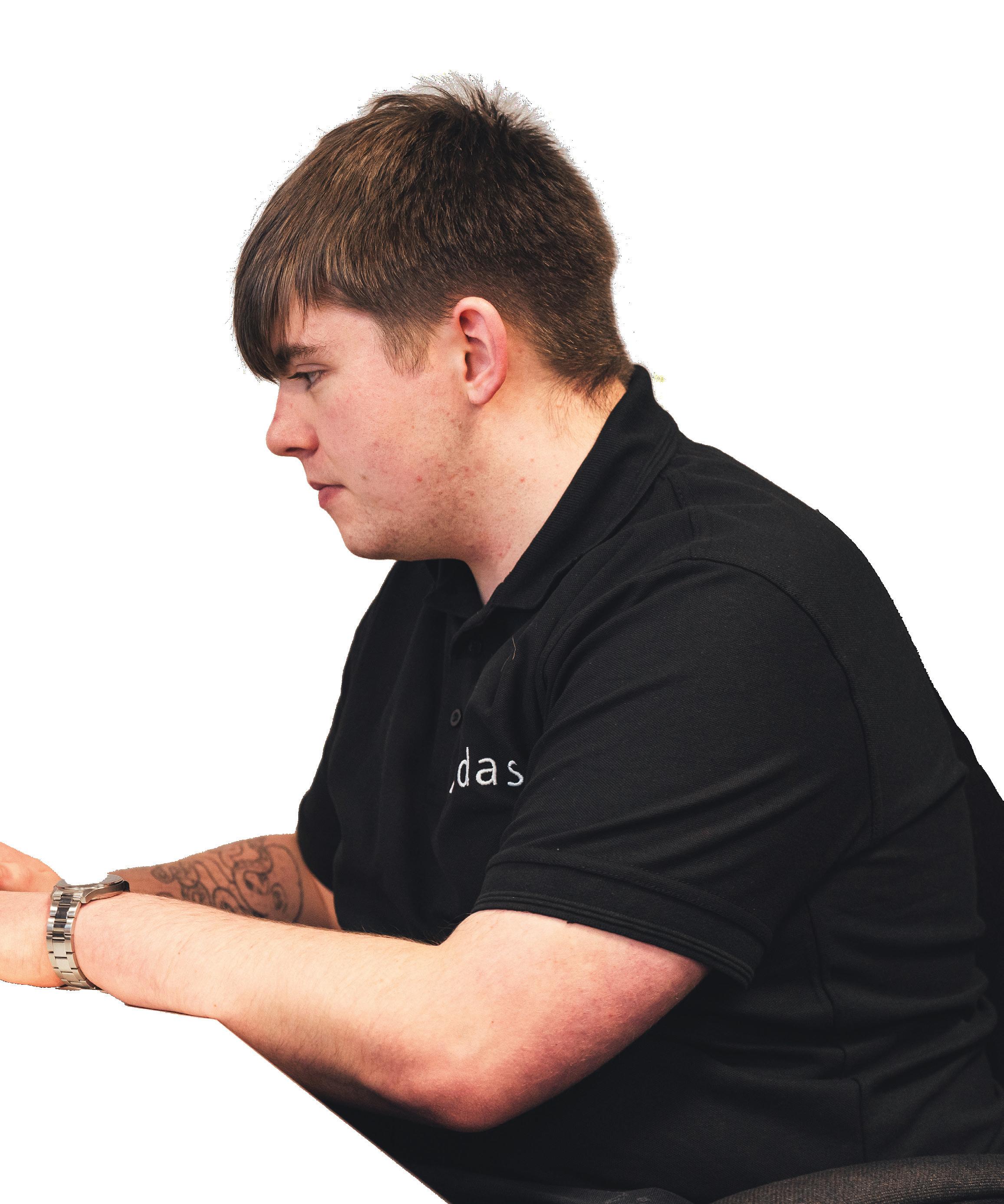



Digital Technology Solutions Degree Apprenticeship
What made you choose the Information Technology industry?
I’ve always been interested in IT and being at the cutting-edge of new technologies, so it was a natural next step for me. I enjoy being able to use and implement new technologies and being a career field that’s always changing.
Why did you choose a Themis Apprenticeship?
I’m learning technical skills in an office environment where I can utilise the practical skills I’m learning.
The main reason I chose to do an Apprenticeship over a full time degree was having the opportunity to study a degree but having three or more years’ industry experience alongside it.
What’s your ultimate career goal?
I want to develop further in my current role to take control of projects and ultimately specialise in cyber security.
“My communication skills have improved significantly since starting my Apprenticeship. Working in IT support allows me to communicate internally and externally.”
Burnley
Audas was established in 2007 and has built up an enviable reputation for delivering first class quality, good value and excellent customer service.
They specialise in bespoke fit out, small works and refurbishment projects for the retail, leisure, hospitality, education and commercial sectors and undertake work for small and medium enterprises through to blue-chip high street retailers nationwide.
They have completed projects with longterm blue chip clients such as M&S, Primark, Vodafone & Thomas Cook.
As a Themis Apprentice you will develop much more than industry expertise. You will gain skills that you can transfer between careers and even industries, such as:
Adaptability
Problem-Solving Team Work
Time Management
Listening Work Ethic Self-Management
IT Security Co-ordinator | Cyber Intelligence Officer | Database
Administrator | Software Developer | Systems Analyst | IT Project
Manager | Network Services Engineer | Cyber Security Specialist | Data Analyst | Network Engineer
Large and small private sector companies in a diverse range of industries
Local authorities and national government
National security
National Health Service
Education Sector
• Knowledge of computer operating systems, hardware and software
• The ability to work well with others
• Analytical thinking
• To be thorough and pay attention to detail
• The ability to work well under pressure
• Excellent verbal communication skills
A Network Engineer could earn between:
An IT Service Engineer could earn between:
A Data Entry Clerk could earn between:
A Software Developer could earn between:
An IT Security Co-ordinator can earn up to:
• Setting up and managing user accounts, permissions and passwords
• Making sure security is at the right level to block unauthorised access
• Finding and fixing network faults
• Setting up a maintenance plan to prevent faults
• Giving technical support to people who use the network
• Providing training on new systems
• Carrying out day-to-day administration
• Planning and implementing future developments
• Installing and configuring new software and hardware.
£18,000 - £40,000
£12,000 - £30,000
£12,000 - £25,000
£20,000 - £70,000
£84,000
Degree Apprenticeships combine university study and work-based learning to enable Apprentices to gain a full Bachelor’s degree. A Digital and Technology Solutions Professional provides technology enabled solutions to internal and/or external customers in a range of areas including software, business and systems analysis, cyber security, data analysis and network infrastructure. They implement technology solutions that enable businesses to develop new products and services and to increase an organisation’s productivity using digital technologies. They are confident, competent and capable independent professionals, able to operate in a range of related roles. The occupation is based upon a core set of outcomes that will be supplemented by one of six specialism areas.
The degree allows for two pathway options including; software engineering and cyber security. You will study a variety of modules including; networking, programming, data fundamentals, web applications, cyber security, information security and cloud computing.
This could lead to a successful career in digital and technology solutions including Software Engineer, IT Consultant, Business Analyst and similar roles.
Applicants should have 5 GCSEs at Grade 5 or above, have achieved a relevant Level 3 qualification for example Level 3 Information Communications Technology Apprenticeship, Level 3 Advanced BTEC Computing or 3 or more A Levels with one being in Computer Science.**
This Apprenticeship includes the knowledge, skills and behaviours that are required to successfully provide first line support resolving faults and system user queries. You will study communication and workflow, troubleshooting and maintenance, security, networking and systems, backups and storage and project management.
The broad purpose of the ICT occupation is to deliver efficient operation and control of the IT and/or Telecommunications infrastructure comprising physical or virtual hardware, software, network services and data storage either on-premises or to end users through cloud services that deliver and support the information system needs of an organisation.
A successful career in IT support with potential to progress to Digital Technology Solutions.
Applicants should have 5 GCSEs at Grade 4 or above including English Language and Mathematics. To have studied computing at GCSE is advantageous but not essential.**





Khya
Level 3 Engineering Technician (Machinist) Apprentice
What got you interested in Engineering?
As a child I was always taking things apart and putting them back together and I’ve always been fascinated about how and why things work.
Why did you choose a Themis Apprenticeship?
I feel like it increases your employability. It’s really important in Engineering to learn your practical skillset within a company.
What’s the best thing about being an Apprentice?
I love being an Apprentice because the amount of support you get is incredible and the hands-on experience you get in your job role which is so important.
“I’m looking ahead to one day managing some of the complex projects involved in the Nuclear Engineering sector.”
Burnley
Fort Vale Engineering are a world leader in the design and manufacture of valves and fittings for the container tank industry. They own selfsufficient manufacturing facilities to create standard and bespoke equipment with a huge existing portfolio. Originally manufacturing parts for the road tanker industry, they have enjoyed 50 years of innovation, growth and success that looks set to continue.
As a Themis Apprentice you will develop much more than industry expertise. You will gain skills that you can transfer between careers and even industries, such as:
Adaptability
Problem-Solving Team Work Time Management
Listening Work Ethic Self-Management
Aerospace Engineer | Composites Engineer | Design and Development
| Engineer | Robotics Engineer | Electronics Engineer | Maintenance
Technician | Engineering Operative | Merchant Navy Engineering Officer | CNC Machinist
Large and small private sector companies
Self employment
Local Government
Education sector
National Utility Companies
Armed Forces
Skills
• Maths knowledge
• Manual dexterity
• Knowledge of STEM
• Design skills and knowledge
• Maintaining machines
• Analytical thinking skills
• Paying attention to detail
• Knowledge of physics
• Develop new ideas and processes
• Computer software skills
• Manufacturing products using a variety of materials and methods
• Turning research ideas into technical plans, using computer aided design/modelling (CAD/CAM)
• Carrying out surveys of mechanical systems and equipment
• Carrying out repairs or decommissioning
• Researching and assessing new products and innovations
• Presenting design plans and data to managers and clients
• Producing other technical documents
• Supporting the contract team when bidding for new work
• Overseeing maintenance programmes and quality control
• Managing and leading a project team of technicians, designers and other engineering professionals.
A Merchant Navy Engineering Officer can earn:
An Engineering Maintenance Technician can earn:
An Electronics Engineer can earn from:
An Aerospace Engineer can earn from:
A Welder can earn between:
An Engineering Operative can earn from:
£25,000 - £70,000
£18,000 - £40,000
£21,000 - £65,000
£20,000 - £60,000
£16,000 - £35,000
£14,000 - £25,000
LEVEL 6 (DEGREE)
The BEng component of the Degree Apprenticeship in Engineering is accredited by our partner University, UCLAN† All delivery is on-site at Burnley.
Areas of engineering studied include: manufacturing processes, product improvement and engineering project management, mathematics and science for engineers, materials and manufacture, 3D computer aided design and computer aided engineering, how to run and manage business-led projects, engineering operations and business management.
On completion, you should have the full complement of knowledge, skills and competence to enable you to be employed as an Engineering Designer in one or more of the following roles: Manufacturing Engineer, Mechanical Engineer, or Electrical Engineer/Production Engineer, and work in industries such as: scientific and research industries, automotive industries, design and development and the oil and gas industry.
Applicants should have 5 GCSEs at Grade 5 or above in Mathematics and at least C/4 in English and a Science, Technology or Engineering related subject.
Plus, you must also hold a full level 3 qualification: either A Levels at grade C or above in both a Mathematical based subject and a Science, Technology, Engineering or additional Mathematics related subject, or 90+ credits in an Engineering BTEC.
All apprenticeships are conditional subject to gaining suitable employment.
Applicants already holding HNC/HND may have a reduction of time on-programme which will be discussed on an individual basis.
†pending validation in Jan 2025
LEVEL 6 (DEGREE)
The BEng component of the Degree Apprenticeship in Engineering is accredited by our partner University, UCLAN† All delivery is on-site at Burnley.
Manufacturing Engineers primarily support the activities involved in bringing design programmes into manufacture. This role is pivotal to the launch planning and smooth delivery of exciting new products or product refresh programmes. The focus is on the advanced manufacturing techniques and project management skills required to launch products on time, on cost and to the right quality. Typically Manufacturing Engineers work closely with a range of other engineers, functions and managers both within their own company and supplier base.
The BEng (Hons) Engineering Manufacturing will help you to gain all the skills and a higher education qualification required in order to secure a role as an Engineering Technician in the manufacturing and engineering sector. On completion, you should have the full complement of knowledge, skills and competence to enable you to be gainfully employed as an Engineering Technician in one or more of the following roles: Manufacturing Engineer, Mechanical Engineer, or Electrical Engineer Production Engineer, and work in industries such as; scientific and research industries, automotive industries and development and the oil and gas industry.
Applicants should have 5 GCSEs at Grade 5 or above in Mathematics and at least C/4 in English and a Science, Technology or Engineering related subject.
Plus, you must also hold a full level 3 qualification: either A Levels at grade C or above in both a Mathematical based subject and a Science, Technology, Engineering or additional Mathematics related subject, or 90+ credits in an Engineering BTEC. All apprenticeships are conditional subject to gaining suitable employment. Applicants already holding HNC/HND may have a reduction of time onprogramme which will be discussed on an individual basis.
†pending validation in Jan 2025
Engineering Fitters produce complex high value, low volume components or assemblies in full or part, using machines, equipment or systems to a required specification. To produce or refurbish components, Apprentice Fitters will interpret drawings and specifications and plan their work, for example ensuring they have the right tools, equipment and resources to complete the task to the required specification.
Fitters are required to check their work against quality standards and make adjustments as required based on their knowledge.
Skills covered over the apprenticeship could assist with performing a variety of roles including: Mechanical Fitter, Electrical Fitter, Electronic Fitter, Instrumentation Fitter, Pipe Fitter or Controls and Systems Fitter.
Mandatory Qualifications:
Level 3 Diploma in Advanced Manufacturing Engineering (development knowledge)
Delivered in College 1 day per week term-time September – July over 2 years
• A Higher or Degree Level Apprenticeship
• Additional industry related training
• Successful career progression within the Engineering sector.
Applicants should have 4 GCSEs at Grade 4 or above, including English and Science and ideally a 5 or above in Mathematics.**
LEVEL 3
Machinists are predominantly involved in highly skilled, complex precision work, machining components from specialist materials using conventional and CNC machine tools.
During, and on completion of the machining operations, Apprentices will be expected to measure and check the components being produced and make adjustments to the equipment/programme to ensure components meet the required specification.
Skills covered throughout the apprenticeship will include the use of: centre lathes, vertical and horizontal milling machines, horizontal and cylindrical grinding machines, electro discharge machines and single and multi-axis CNC machine tool centres
Mandatory Qualifications:
Level 3 Diploma - Machining Technician
Delivered in College 1 day per week term-time September – July over 2 years
• A Higher or Degree Level Apprenticeship
• Additional industry related training
• Successful career progression within the Engineering sector.
Applicants should have 4 GCSEs at Grade 4 or above, including English and Science and ideally a 5 or above in Mathematics.**
LEVEL 3
Electrical/Mechanical/Control and Instrumentation
Technicians will work on various types of plant and equipment commonly found throughout the Engineering industry sectors.
Apprentice Technicians can be expected to migrate through these sectors during the course of their career. Dependent upon the sector in which they are employed, there may be subtle differences in terms of the composition and application of the plant and equipment.
Skills developed across the apprenticeship include: installation, testing, servicing, removal, replacement, maintenance and repair of a range of equipment, sometimes complex, as part of planned preventative and reactive maintenance programmes. Decommissioning may also be undertaken.
• A Higher or Degree Level Apprenticeship
• Additional industry related training
• Successful career progression within the Engineering sector.
Applicants should have 4 GCSEs at Grade 4 or above including English and Science and ideally a 5 or above in Mathematics.**
Fabricators are found in the Advanced Manufacturing Engineering and Engineering Construction sectors. The broad purpose is to carry out metal fabrication work using rolled steel joists, columns, channels, steel plate and metal sheet.
In their daily work, Apprentices will interact with Planners, Supervisors, Inspectors, Designers, Welders, Pipefitters, Fitters, Machinists, Riggers, Steel Erectors, Stores Personnel, Painters and many others involved in manufacturing, production, maintenance and repair.
Skills covered throughout the apprenticeship could assist with performing a variety of roles including the manufacture of: bridges, oil rigs, ships, petro-chemical installations, cranes, platforms, aircraft, automotive and machinery parts, sheet metal enclosures, equipment supports and anything else that can be fabricated out of sheet metal.
Mandatory Qualifications: Level 3 Diploma in Advanced Manufacturing Engineering (development knowledge) Delivered in College 1 day per week term-time September – July over 2 years
• A Higher or Degree Level Apprenticeship
• Additional industry related training
• Successful career progression within the Engineering sector.
Applicants should have 4 GCSEs at Grade 4 or above including English and Science and ideally a 5 or above in Mathematics.**
42 MONTHS* LEVEL 4
The broad purpose of this apprenticeship standard is to provide specialist technical support for engineers, so that organisations can develop, produce or test new and existing products, processes, or procedures to meet a customer specification in terms of quality, cost and delivery, as efficiently and effectively as possible.
Engineering Manufacturing Technicians gather information and data from a range of sources and analyse the information and data. They will make decisions, solve problems and produce and where applicable, update technical documentation, reports or specifications covering areas such as quality, reliability, production schedules and targets, costing or other technical documentation that informs others, either internally or externally what needs to be done such as how a product must be designed, manufactured, tested, modified, maintained, stored, transported, commissioned or decommissioned.
An apprentice will be responsible for the quality, safety and delivery of the manufactured product or service, ensuring it is delivered to the customer on time at the agreed cost. They will typically report to an engineering or manufacturing manager as part of a cross functional team, the size of this team and responsibilities will vary depending on the size of the employer. Although working within defined quality processes and procedures, they are responsible for the delivery, quality and accuracy of the work they complete. They use a range of tools and techniques to support decision making and solve problems that are often complex and non-routine.
Mandatory Qualifications:
Level 4 HNC (Higher National Certificate) in Engineering/ Manufacturing (pathway determined by role)
Delivered in College 1 day per week term-time September – July over 2 years
• A Higher or Degree Level Apprenticeship
• Additional industry related training
• Successful career progression within the Engineering sector.
Applicants should have 5 GCSEs at Grade 5 or above in Mathematics and at least C/4 in English and a Science, Technology or Engineering related subject. Plus, you must also hold a full level 3 qualification: either A Levels at grade C or above in both a Mathematical based subject and a Science, Technology, Engineering or additional Mathematics related subject, or 90+ credits in an Engineering BTEC.**
42 MONTHS* LEVEL 3
Mechatronics Maintenance Technicians ensure plant and equipment perform to the required standard to facilitate production targets regarding safety, quality, delivery and cost within high value manufacturing environments.
Typically the work would cover a broad range of activities including installation, testing, fault finding and the ongoing planned maintenance of complex automated equipment.
Skills developed across the four years include blending knowledge and occupational behaviours across; electrical, electronic, mechanical, fluid power and control systems disciplines.
Mandatory Qualifications:
Level 3 Diploma in Advanced Manufacturing Engineering (development knowledge)
Delivered in College 1 day per week term-time September – July over 2 years
• A Higher or Degree Level Apprenticeship
• Additional industry related training
• Successful career progression within the Engineering sector.
Applicants should have 4 GCSEs at Grade 4 or above including English and Science and ideally a 5 or above in Mathematics.**
LEVEL 3
Technical Support Technicians work as part of a team to provide expertise for all areas of the Engineering and manufacturing function. This could include working with communications software, test, analysis tools, measurement, offline programming, process control, performance and continuous improvement solutions, capacity planning, production scheduling/planning, product technical applications and capability, technical sales and marketing support, product development and innovation, Engineering drawing, purchasing and/ or supply of goods or services for Engineering activities, quality control, inspection and ecommerce technologies as required.
Mandatory Qualifications:
Level 3 Diploma in Engineering and manufacturing support technologies
Delivered in College 1 day per week term-time September
– July over 2 years
• A Higher or Degree Level Apprenticeship
• Additional industry related training
• Successful career progression within the Engineering sector.
Applicants should have 4 GCSEs at Grade 4 or above including English and Science and ideally a 5 or above in Mathematics.**
LEVEL 3 42 MONTHS*
Toolmakers & Tool and Die Maintenance Technicians are predominantly involved in the highly skilled, complex and specialist detailed work of manufacturing and maintaining the Engineering tooling used to produce components, products and assemblies.
Technicians will be expected to test and adjust the systems they have built or maintained ensuring tooling, jigs, fixtures and assemblies meet the required specification.
Skills covered across apprenticeship include: the interpretation of engineering drawings and technical instructions and the use of hand, machine and automated computer-controlled machine tools and measuring equipment.
Mandatory Qualifications:
Level 2 Diploma in Advanced Manufacturing Engineering (foundation skills)
Delivered via skills blocks or 42 week programme in the workshop
Level 3 Diploma in Advanced Manufacturing Engineering (development knowledge)
Delivered in College 1 day per week term-time September – July over 2 years
Level 3 Diploma in Advanced Manufacturing Engineering (development competence) Toolmaker Delivered in the workplace
• A Higher or Degree Level Apprenticeship
• Additional industry related training
• Successful career progression within the Engineering sector.
Applicants should have 4 GCSEs at Grade 4 or above including English and Science and ideally a 5 or above in Mathematics.**
Welding is a way to make high strength joints between two or more parts. Multi-Positional Welders use high electrical energy to form an arc. Manual dexterity is essential in controlling the arc, which is used to melt metals, allowing them to fuse together to form a structurally sound weld.
Welding is used extensively in almost every sector of industry, including oil, gas, marine, transport, nuclear, processing, aerospace, pharmaceuticals and more. Multi-Positional Welders make items such as: pressure containment equipment and pipework, submarines, military vehicles and aero engine components.
Skills developed across the three years will ensure Apprentices are able to work with a range of welding processes with different metals, to the levels of quality and inspection required in safety-critical applications. Apprentices will also be able to recognise and adapt different materials and identify their properties and behaviours.
• A Higher or Degree Level Apprenticeship
• Additional industry related training
• Successful career progression within the Engineering sector.
Applicants should have 4 GCSEs at Grade 4 or above including English and Science and ideally a 5 or above in Mathematics.**
Engineering Operatives are predominantly involved in engineering operations which are key to the success of the manufacturing and Engineering sector, allowing employers to grow their business while developing a workforce with the skills and knowledge to enhance the sector.
Apprentices will cover a range of common and jobspecific skill sets that can be transferred across the manufacturing Engineering industry sectors over the course of their careers.
Skills covered across the apprenticeship could assist with performing a variety of roles including: Servicing and Maintenance Operative; Machine Setter/Operative; Mechanical Engineering Operative; Fabricator; Engineering Fitter; Multi-Disciplined Engineering Operative; Materials, Processing and Finishing Operative; Technical Support Operative; Founding/Casting Operative.
Mandatory Qualifications:
Level 2 Engineering Operations (knowledge)
Delivered 1 day per week in the classroom during term-time in Yr1
Level 2 Engineering Operations (skills)
Delivered via skills blocks in the workshop
Level 3 Apprenticeship in Engineering
Level 3 course in Engineering
Additional industry related traini ng Career progression opportunities within the Engineering sector
Applicants should have 3 GCSEs at Grade 4 or above including English and Mathematics.**
2
18 MONTHS*
A Lean Manufacturing Operative will be expected to meet the quality standards demanded in a fast-paced and efficient processing environment and develop into a multiskilled operator through process ownership. You may be required to carry out consecutive manufacturing activities with different specifications in a high-volume environment.
You will be required to prepare, control, contribute to and complete manufacturing operations, and follow manufacturing processes and standard operating procedures (SOPs) while adhering to specific safe working policies and procedures.
You will develop and support improvement in the manufacturing operation using continuous improvement methods, kaizen tools, process visualisation using lean principles and problem-solving tools and techniques.
Mandatory Qualification:
Level 2 Diploma in Manufacturing (knowledge and skills) Delivered 1:1 in the workplace
Level 3 Apprenticeship in Engineering
Level 3 course in Engineering Additional industry related training Career progression opportunities within the Engineering sector
Applicants should have 3 GCSEs at Grade 4 or above including English and Mathematics.**



DRIVE POSITIVE CHANGE THROUGH MOVEMENT AND POWERFUL COMMUNICATION



Level 4
Sports Coach Apprentice
What skills have you developed on your Apprenticeship?
My leadership skills have improved and I’m a more confident speaker. I’ve also developed in my delivery and planning of sessions.
What’s the highlight of your Apprenticeship so far?
I took a leading role in the Road2Paris initiative. This included visiting primary schools teaching them Olympic and paralympic sports, giving them an insight into what they do and different sports they can take part in.
What does your day to day role look like?
It starts with running a breakfast club, then going to a nursery and teaching football and fundamental skills with them which we call Diddy Dribblers.
In the afternoon I might head to a school to deliver two PE lessons and an after school club which could focus on a different sport each time or one that the club have asked me to deliver.
“It is a more hands on approach and you learn things very quick and can see the wider range of opportunities that you can take on after the apprenticeship.”
Whalley
Pro Sport Coaching provide high quality sports provision, active education and swimming tuition to schools and families across Lancashire. Their aim is to inspire, motivate and encourage more children to be physically active each year and their team are dedicated to providing schools and families with an engaging sports provision that motivates children to lead a healthy lifestyle. By working with schools, they aim to increase the amount of pupil participation in a number of different sports and activities, helping them to build healthy habits for life.
As a Themis Apprentice you will develop much more than industry expertise. You will gain skills that you can transfer between careers and even industries, such as:
Team Work Communication Leadersip
Work Ethic Personal Development
Personal Trainer | Fitness Instructor | Sports Coach | Leisure Centre
Manager | PE Teacher | Sports Agent | Sports Development Officer | Sport
Psychologist
Private and Public Sports and Leisure Sector
Organisations
Health Care Providers
Schools
Sporting Institutions and Bodies
Self Employment
• The ability to quickly develop successful working relationships with people from different backgrounds
• A desire to help others succeed
• Excellent communication and interpersonal skills
• Team-building ability
• Enthusiasm, flexibility and patience
• Awareness of equality and diversity issues, including those related to sport and disability
• Motivational skills and an understanding of the psychology that underpins successful competition
• Organisational skills
• A strong interest in maintaining professional skills and knowledge
A Sports Coach could earn between:
A Sports Development Officer could earn between:
A Personal Trainer can earn between:
• Evaluating performance and providing feedback
• Identifying areas for further development
• Communicating instructions and commands using clear, simple language
• Demonstrating an activity by breaking the task down into a sequence
• Ensuring participants train and perform to a high standard of health and safety
• Inspiring confidence and self-belief
• Developing knowledge and understanding of fitness, injury, sports psychology, nutrition and sports science
• Working with IT resources to monitor and measure performance
• Acting as a role model, gaining the respect and trust of the people you work with
• Liaising with other partners, such as physiotherapists, doctors and nutritionists
• Producing personalised training programmes
• Planning and running activities for groups and individuals
• Finding appropriate competitions for participants.
£15,000 - £25,000
£21,000 - £50,000
£14,000 - £40,000
As a Sports Coach you will measure the impact of your coaching strategies through analysis of the participant, coaching team and organisational perception and performance data. Sport Coaches may also influence professional and governing bodies through their own practice.
You will interact with and influence the coaching team and wider industry support networks through the design and delivery of your own coaching philosophy and professional practices in line with the organisational visions, strategies, policies and processes.
Sport Coaches provide meaningful and high-quality learning, development and performance experiences, supporting achievements, increasing participation, raising educational standards, enhancing wellbeing and driving social change.
Typically, Apprentices will progress and be working as a School Sports Coach, a High Performance Coach or a Community Sports Coach. This standard aligns with The Chartered Institute for the Management of Sport and Physical Activity (CIMSPA).
Ideal applicants would have experience in sports coaching and have a sports coaching-related qualification at Level 3. This can be through a part-time or full-time qualification or gained as part of a previous apprenticeship. Applicants would also be expected to have 5 GCSE’s at grade C/4 or above including English Language.**
This Apprenticeship will teach you the knowledge, skills and behaviours to undertake your role. This includes Anatomy, Physiology and Kinesiology, Lifestyle Management and Client Motivation, Health and Wellbeing, Exercise Programme Design and Delivery, Exercise Technique and Nutrition.
Personal Trainers motivate clients to positively change their behaviour and improve their overall wellbeing by providing specialist, tailored advice within their scope of practice, while being aware of when to refer clients to relevant appropriate professionals for specialist information and guidance.
A comprehensive understanding of business, finance, sales and marketing is essential to enable a Personal Trainer to build and retain a stable client base. Personal Trainers are typically employed by a fitness or leisure centre and should expect to work hours that may include evenings, weekends and public holidays.
Successful completion of this Apprenticeship will enable further experience and training in the fitness industry to support the move into fitness management or specialist instructor role or progression onto a Degree Level Apprenticeship or a range of other degree courses, or a successful career in Personal Training or Leisure Management.
Applicants should have 5 GCSEs at Grade 4 or above including English Language and Mathematics, in order to have the most success being placed with an employer.**
2
18 MONTHS*
The role of the leisure team member is to support, enhance and deliver the day to day operations and services of a leisure/fitness facility. Working as part of a team, it is the responsibility of the Leisure Team Member to undertake a range of operational duties such as assisting with the opening and closing of the facility, undertaking routine maintenance of equipment and maintaining the cleanliness and safety of the environment.
Alongside these operational functions they ensure programmed activities and services are available for customers. They act as a Lifeguard, Swimming Teacher, Gym Instructor and Group Activity Leader. In a typical working day they may perform all of these roles in one shift, for example: open or close the facility, welcome customers, deliver a gym induction, run a group exercise session, teach a swimming lesson, clean the facility, walk the gym floor, prepare the sports hall for a sports activity and deliver the session. The role requires empathy, professionalism and an ability to work flexibly.
Alongside their operational duties there are five key areas of work all Leisure Team Members will cover: leisure and fitness operations, lifeguard duties, swimming teaching duties, gym instruction and leading group activities.
On successful completion of this Apprenticeship, you will be eligible to become an affiliate member of the Chartered Institute for the Management of Sport and Physical Activity (CIMSPA).
Applicants should have 2 GCSEs at Grade 4 or above. We advise all candidates that having Mathematics and/or English GCSEs are desirable as you will have to resit these as part of your Apprenticeship.**
The Community Activator Coach Apprenticeship underpins occupations such as an Activator, Sports Coach, Activity Leader, Community Worker or Outreach Officer. You could be working with an employer in areas such as: charity, SME in the sport and physical activity sector; local authorities; sports clubs; leisure centres; youth work agencies; housing associations and outdoor education centres.
The Community Activator Coach promotes, delivers and coaches fun, inclusive and engaging activities that help whole communities to change their behaviour, adopt and keep to a physically active lifestyle.
You will gain specialist knowledge needed to effectively work with a range of different groups from within the community, which will make lives better through physical activity, organised play and sport.
The Community Activator Coach is a role model for young people within communities and works alongside Youth Workers, Police and community safety agencies to keep the local environment safe. The role is flexible and Apprentices can expect to work varied hours, including evenings, weekends and school holidays.
Successful completion of this Apprenticeship will enable you to to move into leadership roles within the sector which may be aligned to an Apprenticeship at a higher level.
Applicants should have 2 GCSEs at Grade 4 or above. We advise all candidates that having Mathematics and/ or English GCSEs are desirable as you will have to resit these as part of your Apprenticeship.**

If you are a school leaver, your first step to find out more about Apprenticeships is to contact our School Liaison Team.
They can offer you the advice and guidance you need to decide if an Apprenticeship is the ideal route into your chosen industry and a successful career. They can help you to: Create a CV | Identify Skills | Prepare for Interviews | Offer General Advice and Guidance
Contact our School Liaison Team for any questions about Apprenticeships: admissions@burnley.ac.uk

Apprenticeships allow you to combine work and study: they mix on-the job training with classroom learning. You are employed to do a real job while studying for a formal qualification at College. You may study one day a week or have ‘block release’ from your Employer, where you study for several weeks in College and then return to the workplace. As an Apprentice you will follow an approved study programme and earn a nationally recognised qualification. At the end of your Apprenticeship, you will have gained the skills and knowledge to succeed in your chosen career or progress onto the next Apprenticeship level.
The qualification you will earn depends on your chosen industry. For example, completing an Advanced (Level 3) Plumbing will earn you a BTEC Level 3 Diploma.
A Chartered Manager Degree Apprenticeship (Level 6) will earn you a BA (Hons) in Business Management.
If you do not already have English and Maths qualifications, you will also complete GCSEs or Functional Skills Level 2. Some Apprenticeships require you to already have GCSE Grade C/4 or above.
Speak to our Themis team for more information: themis@burnley.ac.uk.
There are different levels of Apprenticeship:
Level 2 - equivalent to five good GCSE passes.
Level 3 - equivalent to two A Level passes
Higher - equivalent to the first stages of higher education, such as a Foundation Degree Degree - comparable to a Bachelors Degree.
You can apply for Apprenticeships at any time of the yearit all depends on when an Employer has a vacancy.
Many Employers will offer their Apprentices a permanent position on completion of their Apprenticeship. However, in some instances this does not happen. You will then use your experience in the workplace; qualifications; your industry contacts and your skills and knowledge to create a winning CV, impress at interview, be mentored by Themis Staff, enter the jobs market and secure employment with another employer.
An Apprenticeship can last between one and four years but this depends on the Industry you has chosen, the level of their Apprenticeship and your commitment to ensure you acquire the skills and knowledge – both practical and academic – to progress.

If you are in your first year of your Themis Apprenticeship, you will receive at least the Apprentice National Minimum Wage pay rate. If you are aged 19 or over and have completed the first year of your Themis Apprenticeship, you will take home the higher National Living and Minimum Wage rates relevant to your age group. For up to date information on Apprenticeship wages, visit www.gov.uk/ become-apprentice/pay-and-conditions.
Your working hours will vary depending on their employer, but you will not work more than 40 hours or fewer than 30 hours each week. Typically, you will work between 35 and 37.5 hours a week. The sector you are entering will determine when you start and finish work – some Engineering Apprentices could start from 6am; Business Apprentices at 9am and Apprentices in the Leisure Industry may work unsociable hours.
*Figures correct December 2024 at time of going to print and are set to increase in 2025.
Getting an amazing job starts here. You need a standout CV to catch the attention of employers.
Use our template to guide you to create a winning CV which will gain you that all-important interview callback.
Your Name | Address | Town | Postcode | Email address | Mobile phone number
Do you have a blog? Online or downloadable portfolio? Add links to these here.
• List all the things you’ve done in your student or working life that have given you the professional experience you need to carry out the job you’re applying for.
• It’s a good idea to bullet-point this section so that each of your experiences are listed clearly and concisely.
• Try to sum up each point briefly – not everybody who receives your CV will have a lot of time, so make it as easy for them as possible.
• Add links to any work you’ve been a part of. Most employers will now be reading your CV on a computer or mobile device, so links to previous places of work or any useful articles regarding your experience will add depth and interest to your application.
Have you any memorable experiences that might be relevant to the role? Anything you can add that will help you stand out from other applicants will help you stick in employers’ minds. For example, have you worked abroad? Are you a volunteer? Do you have an interesting and skilful hobby?
Skills are relative to each person creating a CV. For some it could be the things they learned while carrying out previous tasks within their previous roles; for others it could be teambuilding exercises on Duke of Edinburgh Awards trips or even evidence of trustworthiness and responsibility from retail work.
Add details of all of your educational achievements to date. This includes the schools you have attended, the dates you attended them and the subjects you studied.
You should also include details of your qualifications.
Show off the skills and achievements you acquired while you worked at any previous jobs, or any work experience you have ever undertaken.
If you have never had a job before, or think the jobs you’ve had don’t seem like they would be relevant to your new employer, think about what else you’ve done that makes you the perfect candidate.
Employers like to see examples of: being responsible, working to deadlines, being punctual and well-presented, being respectful and working with other people in a professional environment.
If you feel you have no relevant experience, you can always expand on some of the points you raised in the Professional Experience section, adding more detailed evidence and explaining your interest in these areas.
You are more experienced than you think!
Have you taken on any internships or gained any other qualifications that were not part of your general education or career so far?
This is the place to expand on any extra merits you have, from language qualifications to online courses you’ve taken. If you’ve been learning how to code online – add it here. If you’ve been using Duolingo to learn Italian –add it here too. Have you ever worked for a company as an intern, even if it was only for a week? Don’t forget to include it!
Add at least two people who can comment on your abilities. If you currently have a job, one of these is usually your line manager. The other can be a teacher, previous line manager or a professional who knows you well.
Tip: Don’t pass on your referees’ details without asking them first.
Now spellcheck! Even better, ask somebody you trust to read through your CV to make absolutely sure there are no mistakes before you submit it to any employers.
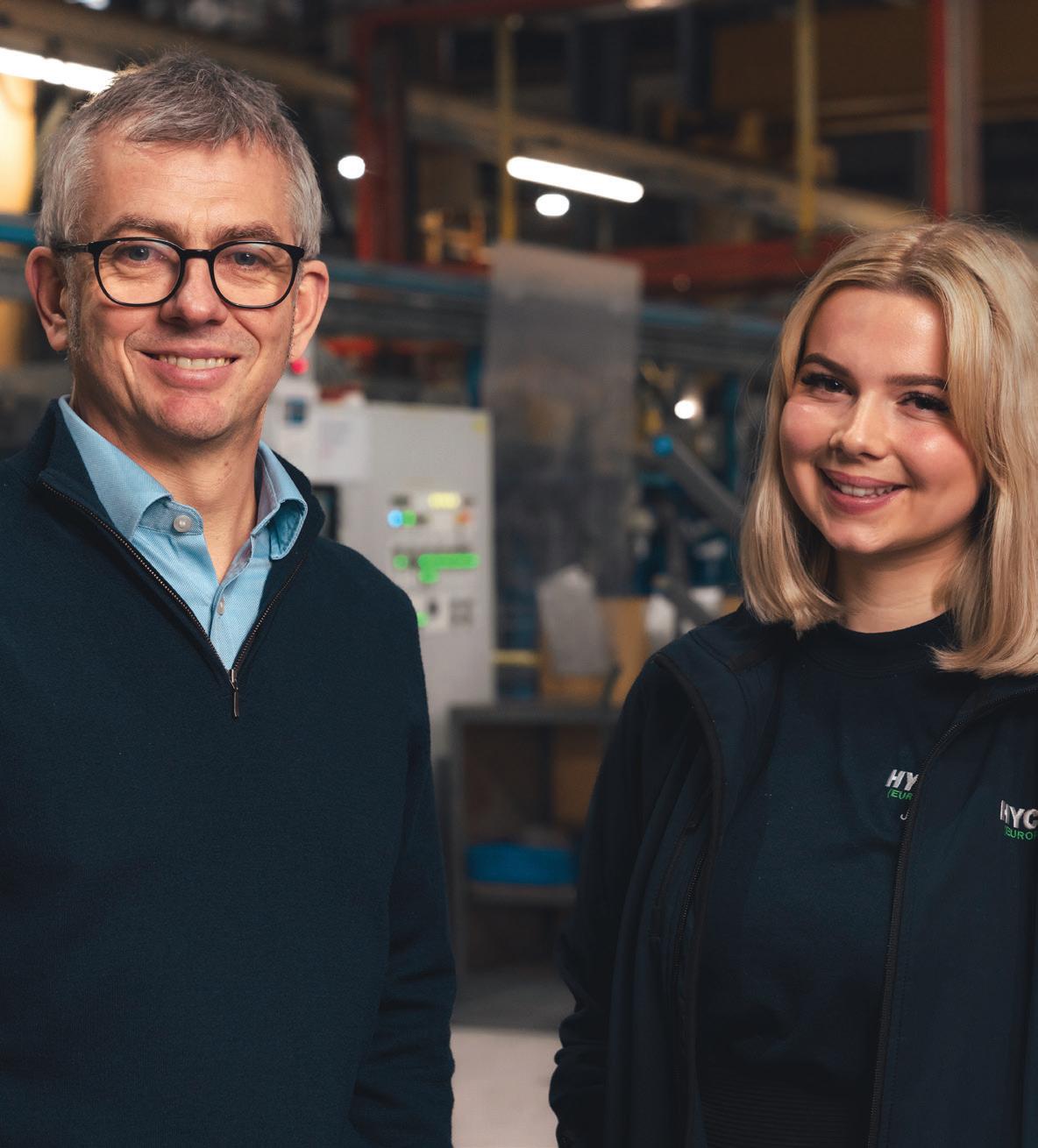

Taking the first step on your career path is exciting. It’s a milestone event.
Be prepared to succeed at interview and impress in the workplace.
The Themis team have created these top tips for you to ensure that you make the transition from school pupil to Apprentice as smoothly as possible.
Always be punctual, polite and make eye contact in your inteview. Speak clearly and do not use slang. Turn your phone to flight mode and keep it in your bag or pocket. Bring any documents or portfolio work requested. Listen closely to the interviewer’s questions and always have a couple of questions prepared that you can ask at the end of the interview.
For your interview you don’t have to wear a suit: a smart pair of trousers and shirt and tie or blouse works. Always choose a clean and pressed outfit.
Prepare. Prepare. Prepare. Practise your interview technique and potential questions with family or friends in advance. Ask for their feedback and take it on board. Maintain good body language and eye contact – stand and sit tall, keep your shoulders back and smile.
Ensure you bring along any documents required on your first day. Be friendly and approachable – your new colleagues will be keen to get to know you. Be ready to learn – everything will be new and there will be lots to take in. Be responsible and follow all health and safety advice you are given. Ask questions – no one expects you to know everything on your first day!

You will be introduced to a Themis Trainer, a specialist in your chosen industry. This is your opportunity to impress and show us you are:
• Smartly presented
• Punctual
• Able to explain why you want to be a Themis Apprentice
• Keen to talk about your ideal career
If you are successful, you’ll be given advice on what areas you need to work on and research, before being invited in for a second interview.
You will be asked to send:
• Your CV
• Your predicted GCSE Grades and latest school reports
• A reference from an employer (if you have a job in your spare time) or school
At the second interview, you’re expected to show us you are:
• Able to talk confidently about why a Themis Apprenticeship is for you and fully understand the commitment involved
• Able to talk knowledgeably and passionately about your ideal career
• Smartly presented
• Punctual
If the Themis Trainer is confident you have what it takes to become a successful Themis Apprentice and #futureboss, you will be allocated your own recruitment consultant from the Themis team.
They will introduce you to potential Employers with Apprenticeship vacancies and you also need to start looking to secure an employer yourself if you don’t already have one.
You will receive your own Themis portfolio to store documents, which will impress at interviews with potential Employers and make you stand out from the crowd.
Every Apprentice completes an initial computer-based assessment that we use to benchmark your level of understanding in Maths & English, called a BKSB (Basic and Key Skills Builder). This indicates specific areas where we can offer you individualised support.
If the Themis Trainer feels you would benefit from additional support before meeting Employers, you will have the opportunity to take part in Themis Toolkit workshops to enhance your skills:
• CV Writing skills
• Interview skills
• Presentation skills
• Confidence to work as part of a team
Once you’ve completed the workshop(s), you will have the opportunity to demonstrate how the Themis Toolkit has helped you improve or you will be given advice tailored to your specific needs on alternative routes to help you achieve your goals, such as a full-time academic course or a traineeship.
If the Themis Team match you with an employer, they may want to interview you. You will be introduced to your Trainer Assessor who will support you with one-to-one advice and guidance.
Congratulations! You are now a Themis Apprentice. The Themis Team and your Trainer Assessor will be here for you throughout your career as a Themis Apprentice on your journey to become a #futureboss.